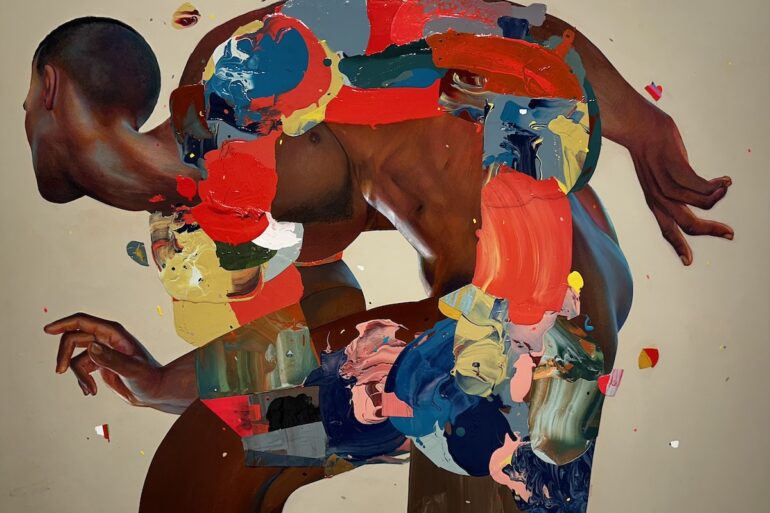
This post is also available in:

The tenth edition of Art Miami +CONTEXT Art Miami counted the participation of 73 exhibitors, of which 35 were international, in addition to which there were 18 first-time exhibitors. There were also 12 special projects consisting of, among other things, four monumental sculptures set up in the venues outside the fair.
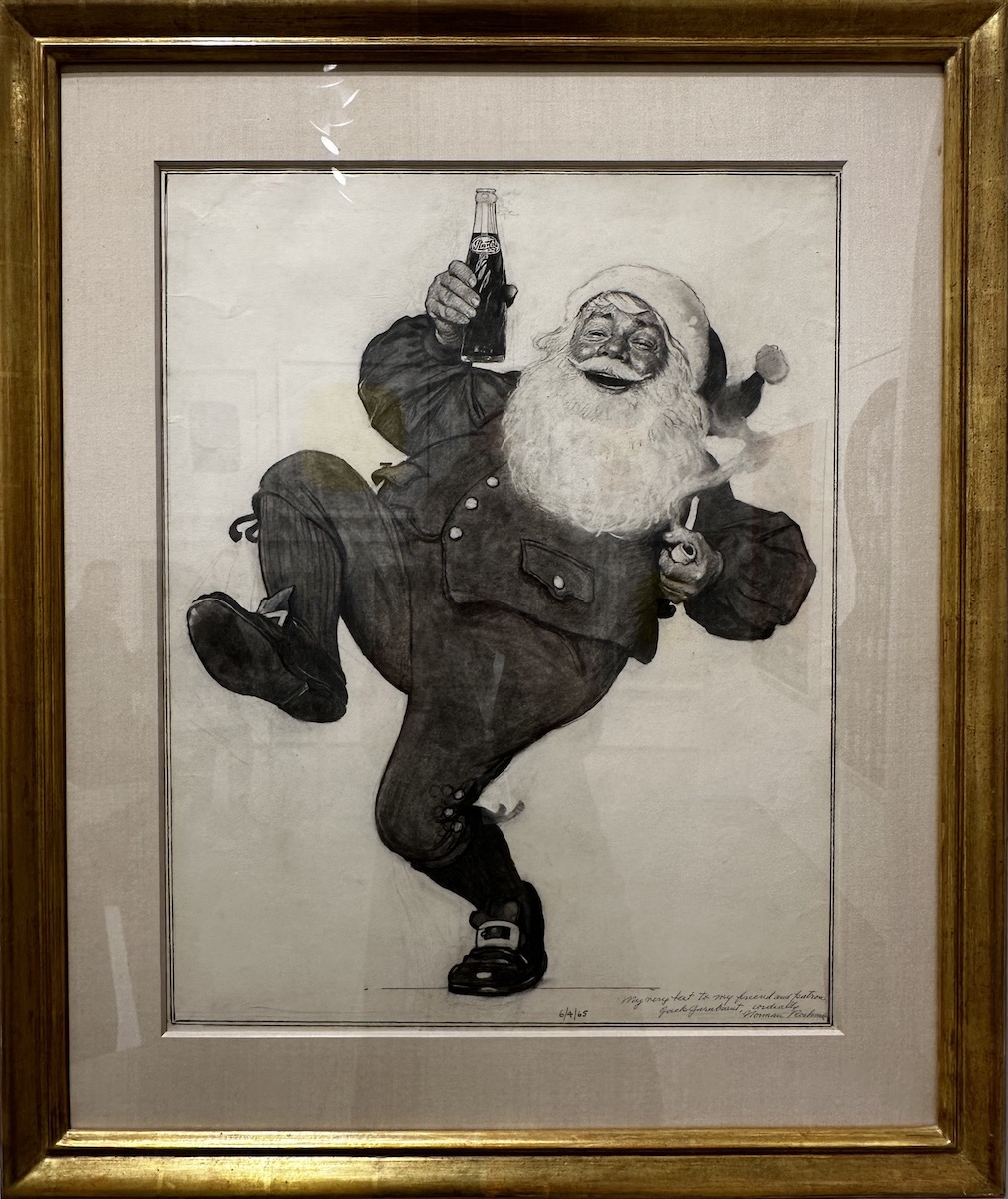
Yet, despite the fact that the program of the tenth edition of Art Miami +CONTEXT Art Miami
included monumental sculptures and augmented reality installations, what captured visitors’ attention were the many enchanting expressions of modern and contemporary realism on display at the fair.
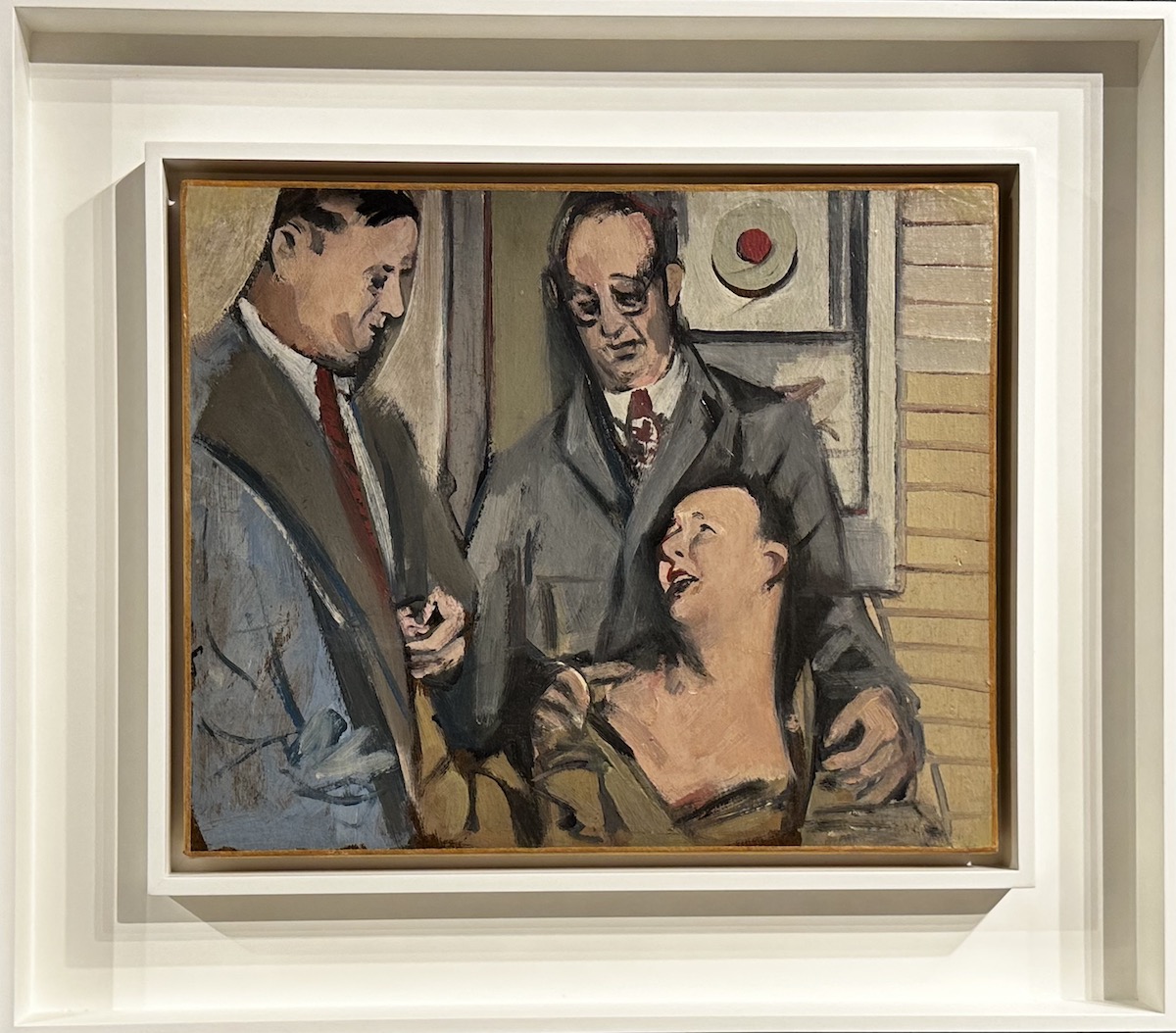
Among these works, in addition to a preparatory sketch made by Norman Rockwell for Pepsi, depicting the famous Santa Claus -for sale at the Robert Fontaine Gallery- an exceptional place had it: “An Opening at Egan Gallery (Portrait of Betsy Egan)” by artist Elaine de Kooning. Although the small oil on panel painting was surrounded by more “showy” works on display at Mark Borghi Gallery, this small masterpiece, captured all the attention of the audience. In the brushstrokes, in which the pictorial abstraction that has characterized all of de Kooning’s pictorial production is visible, the uniqueness of the work emerges, given by both stylistic and compositional choices.
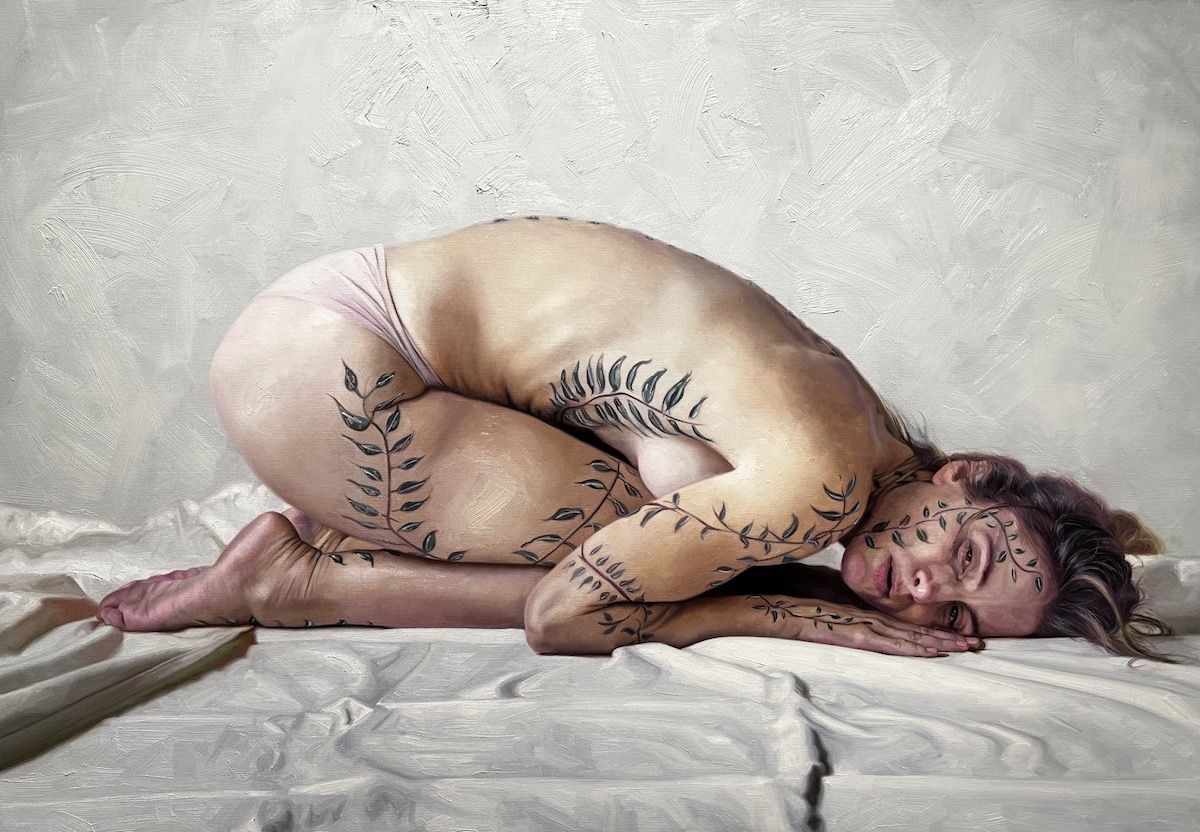
Forum Gallery represented a number of heavy hitters, including artist Alyssa Monks in whose work one can see her characteristic use of impasto, with which she blurs and blends layers of space to create an abstraction capable of being intimate and provocative at the same time.
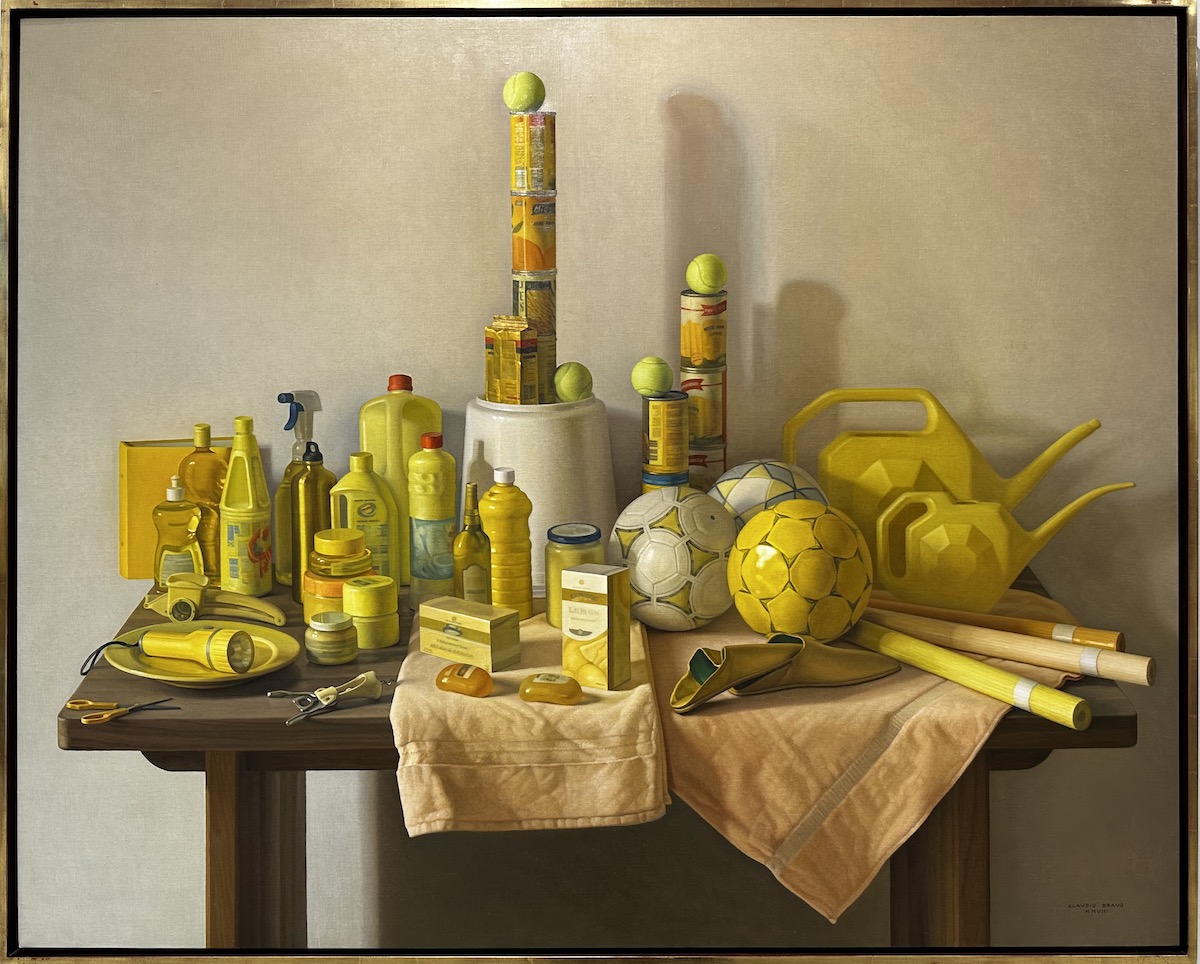
In addition to Monks, the works of two Chilean painters were exhibited: Claudio Bravo, praised by the New York Times for the stunning trompe-l’oeil effect of his paintings, and Guillermo Muñoz Vera an extraordinary interpreter of landscape and still life whose particular attention to detail designated him as painter to King Juan Carlos I of Spain.
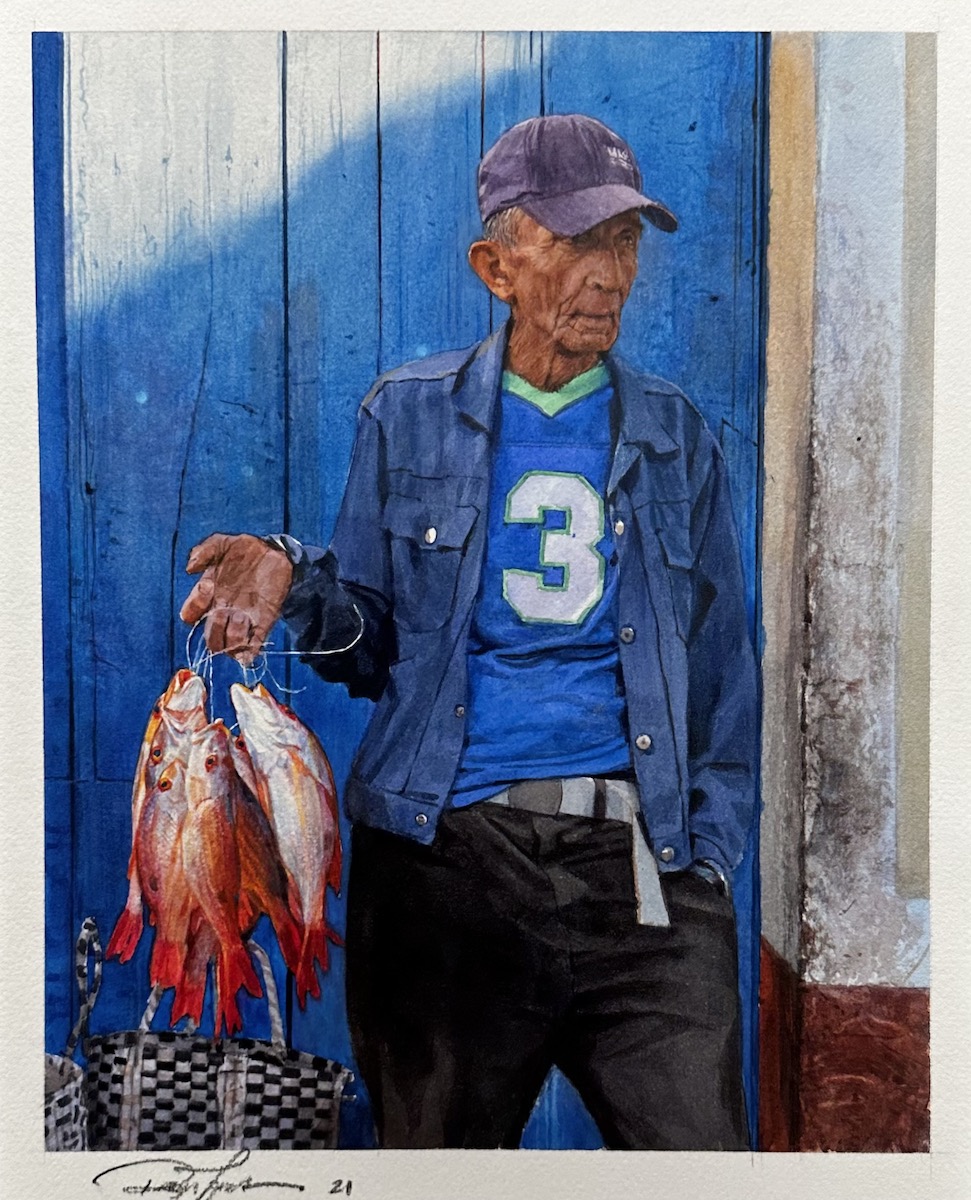
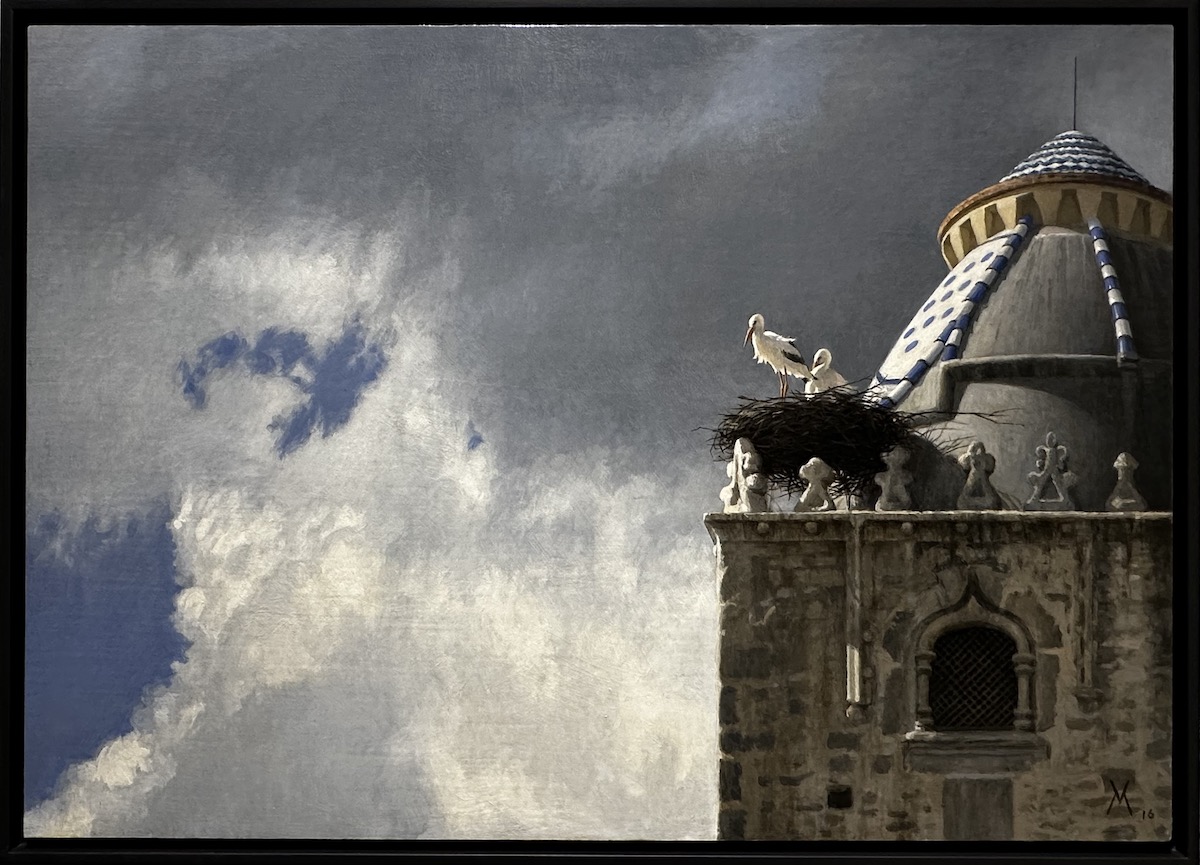
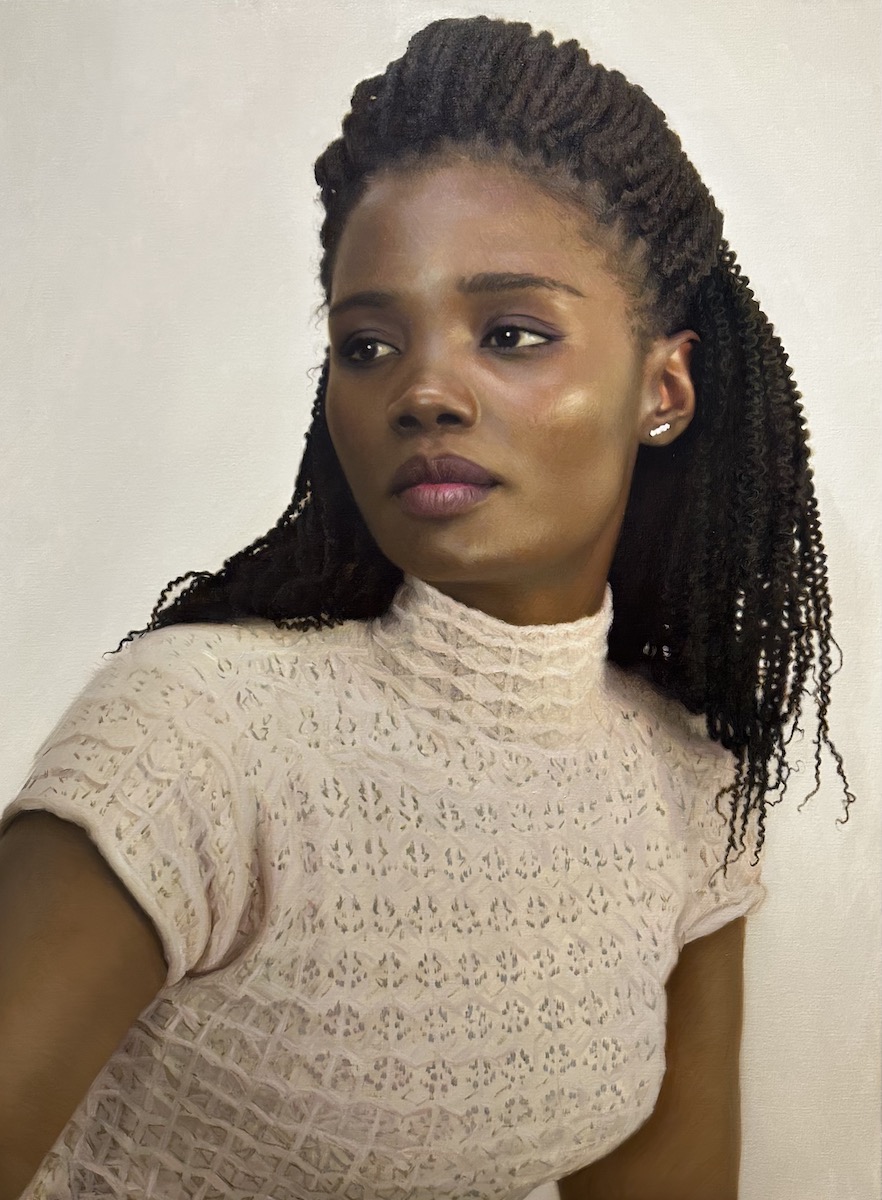
Also on display at the Forum Gallery were sublime watercolors by Rancee Jones, who through the language of the characters and places he depicts, portrays an unfiltered quality of life far removed from gender and cultural stereotypes; and larger-than-life portraits by artist Clio Newton, whose “feminine gaze” combines traditional technique with a contemporary perspective that explores the psychology of the female experience with which she creates larger-than-life portraits.
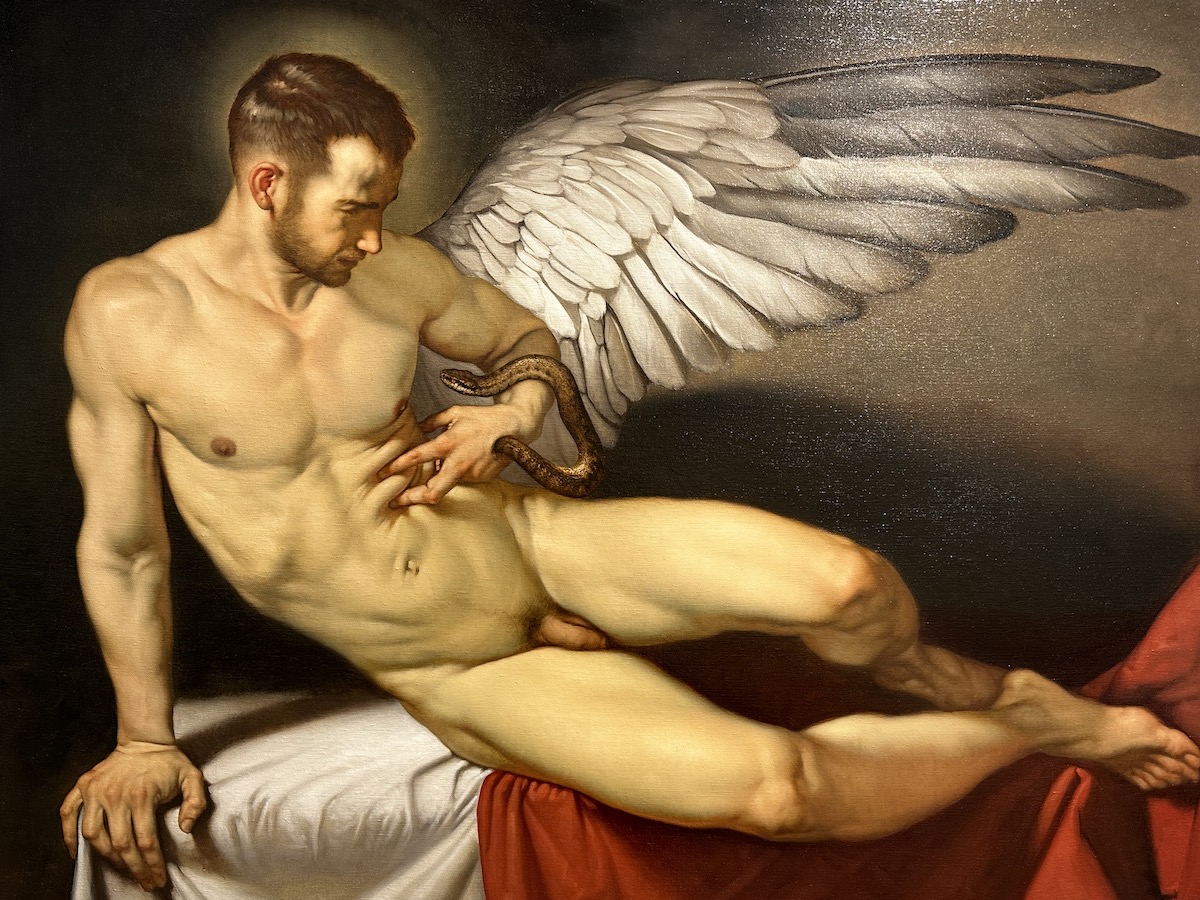
Italian gallery Liquid Art System has made its great contribution to contemporary realism by exhibiting the works of some great masters such as: as Roberto Ferri, Paolo Quaresima and Elisa Anfuso. Clearly inspired by Caravaggio, Roberto Ferri represents icons with physicality, beauty and torment capable of projecting the viewer out of any temporal canon.
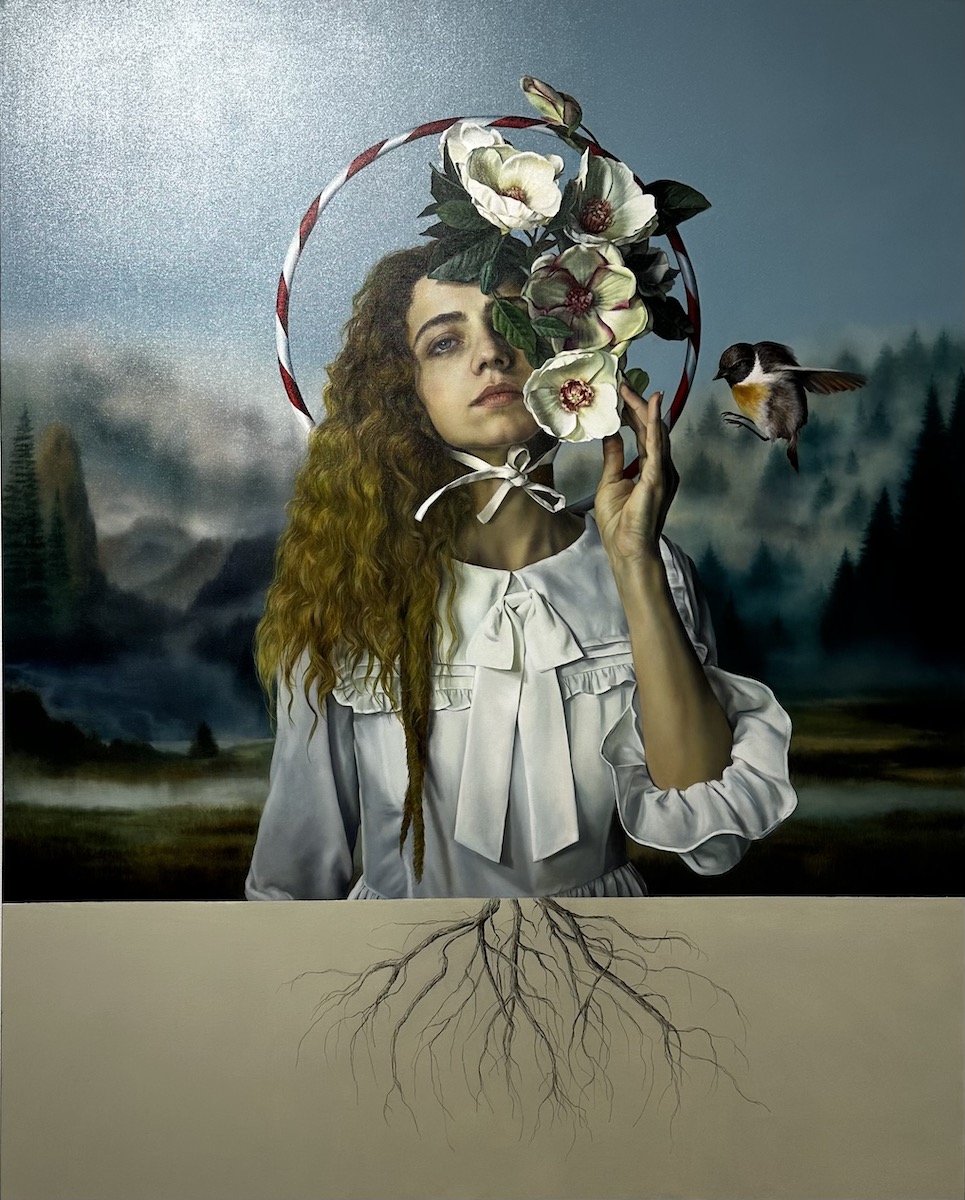
Paolo Quaresima, is defined as the “storyteller of the little things of everyday life,” which he represents with eloquent mastery, while in the works of Elisa Anfuso, whose thoughts entrust painting with the expression of a layered and disturbing world, the fantastic marries fear and fantasy collects the craziest possibilities of the human mind.
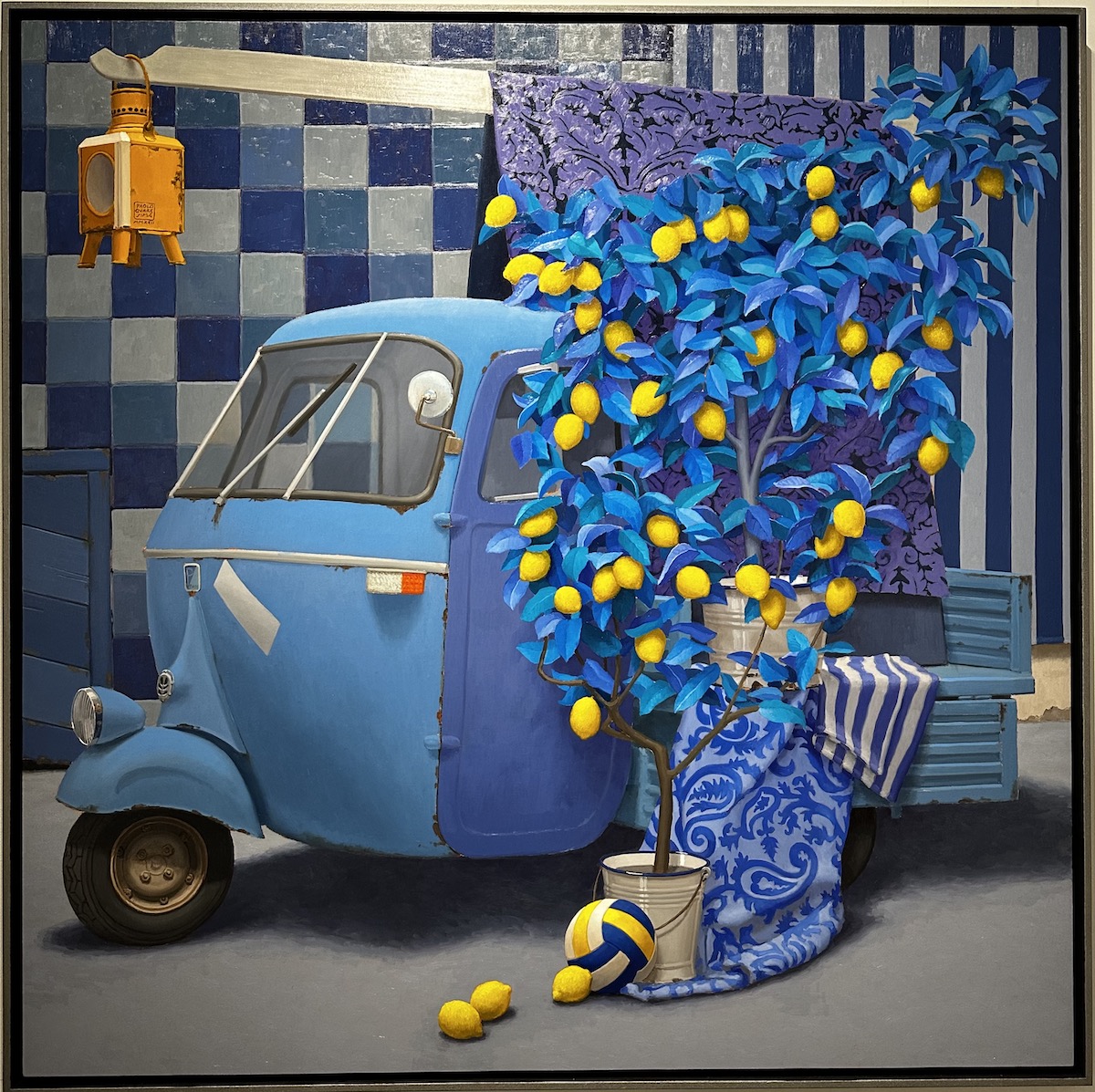
Les Galeries Bartoux featured the works of Christiane Vleugels and Marco Grassi: two artists who have left their mark within the walls of the IBEX Masters collection, with their artistic residency and their works. The portraits of Christiane Vleugels in particular are addressed to all people who, like her, seek the authenticity of life: an authenticity in which it is possible to see oneself even in a glamorous key without having the fear of not being true to oneself and without ever giving up defending one’s values and ideals.
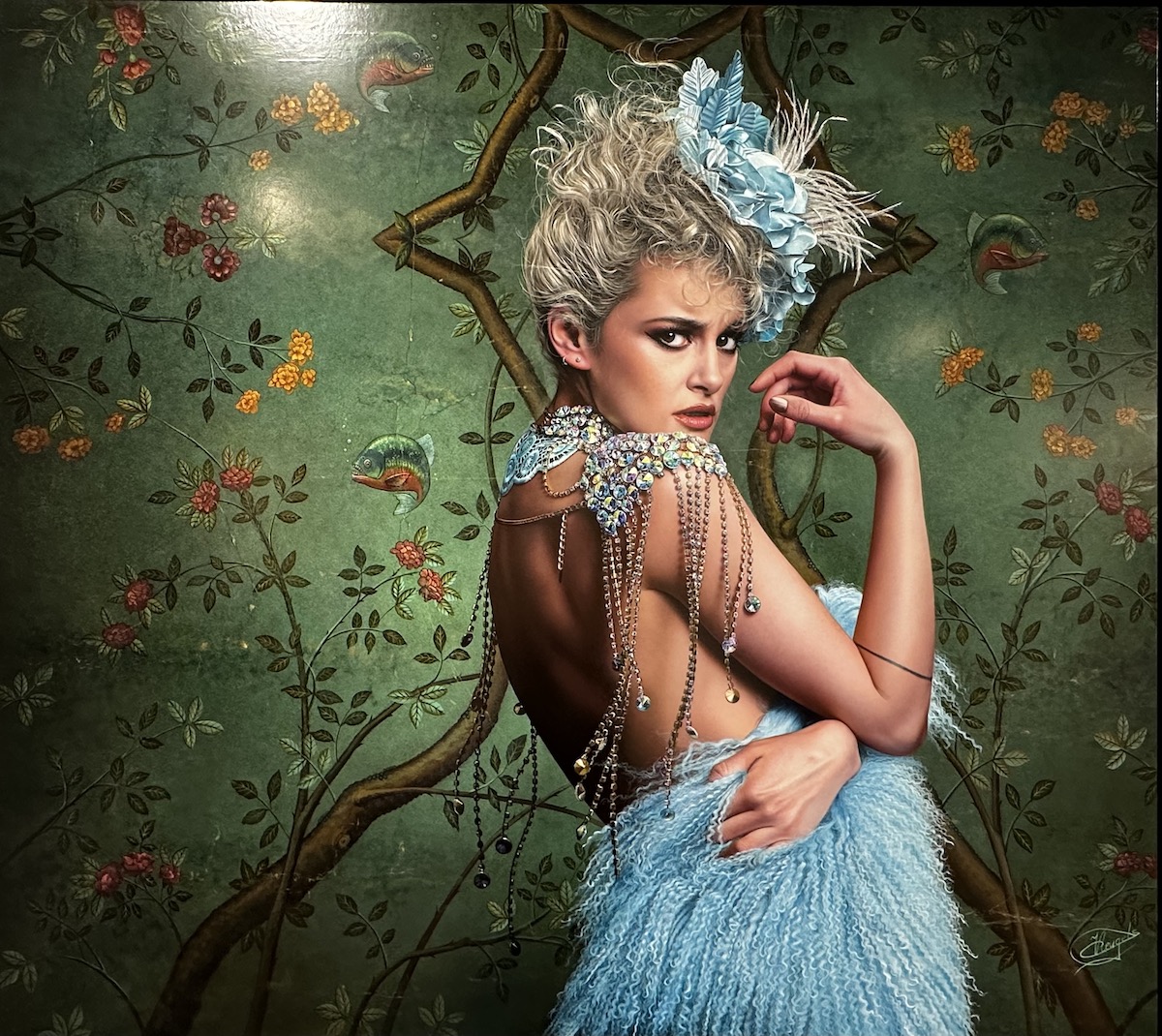
Marco Grassi’s hyperrealist painting, which over time has evolved into hyperrealistic forms but with allegorical overtones, derives from intense study of the great classics of art with an eye for studying the technique of sfumato, which he combines to perfection in his paintings, in which every detail deserves to be observed with special attention.
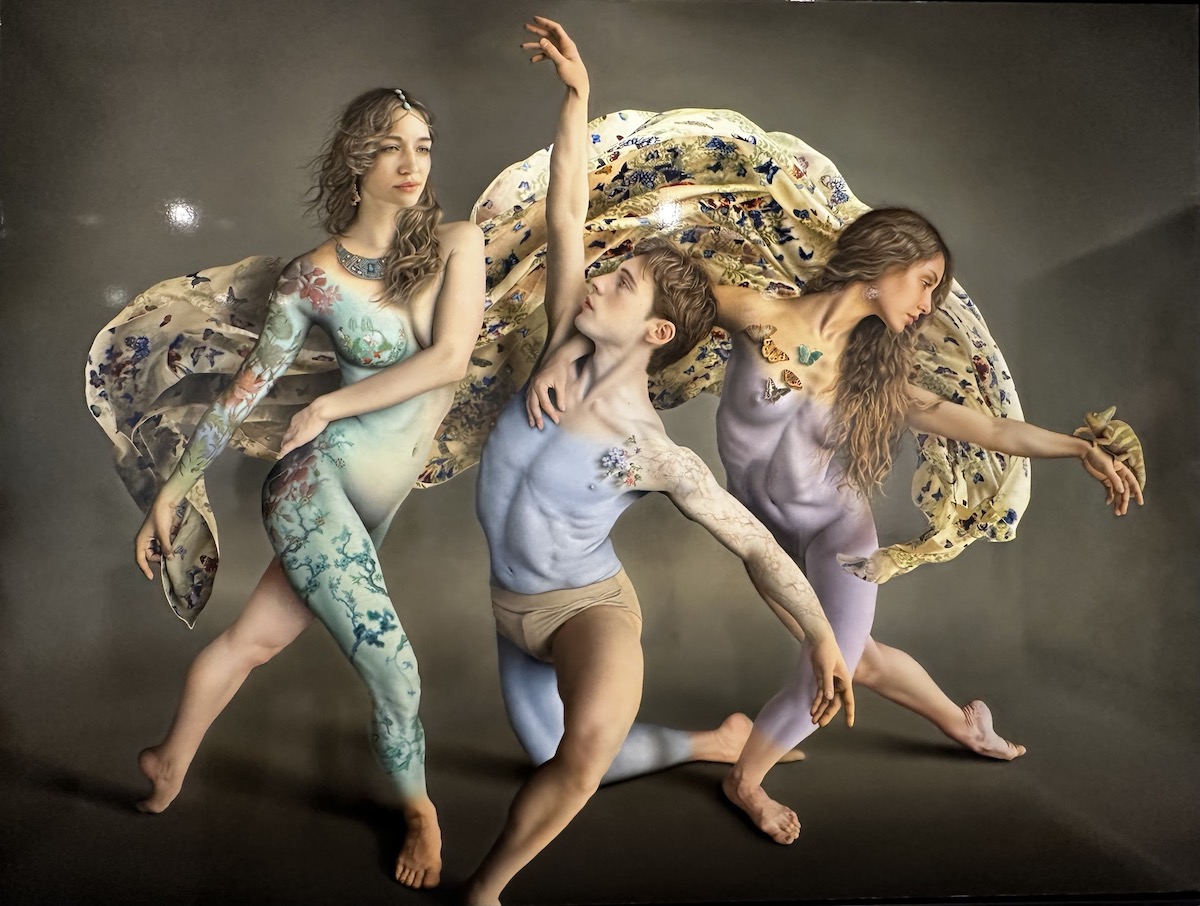
Instead, Arantzazu Martinez’s poetic realism is expressed in thoughtful compositions in which the use of light and form are able to create symbiotic relationships that evoke romantic and symbolic images.
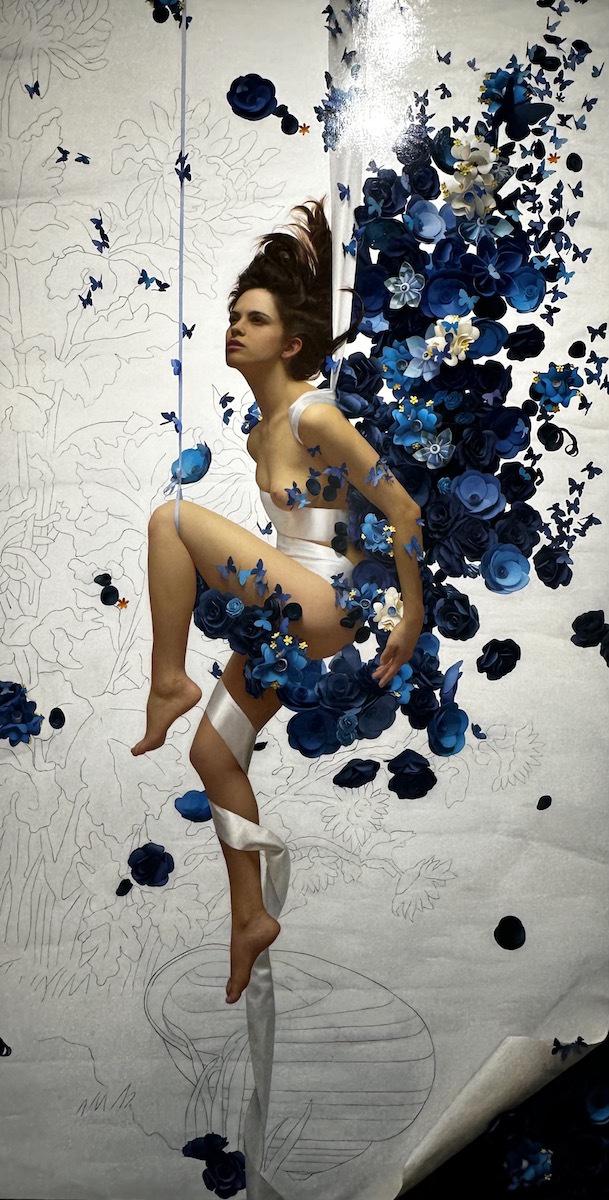
Pontone Gallery, exhibited the images of two great performers, Malcom Liepke and Matteo Massagrande.
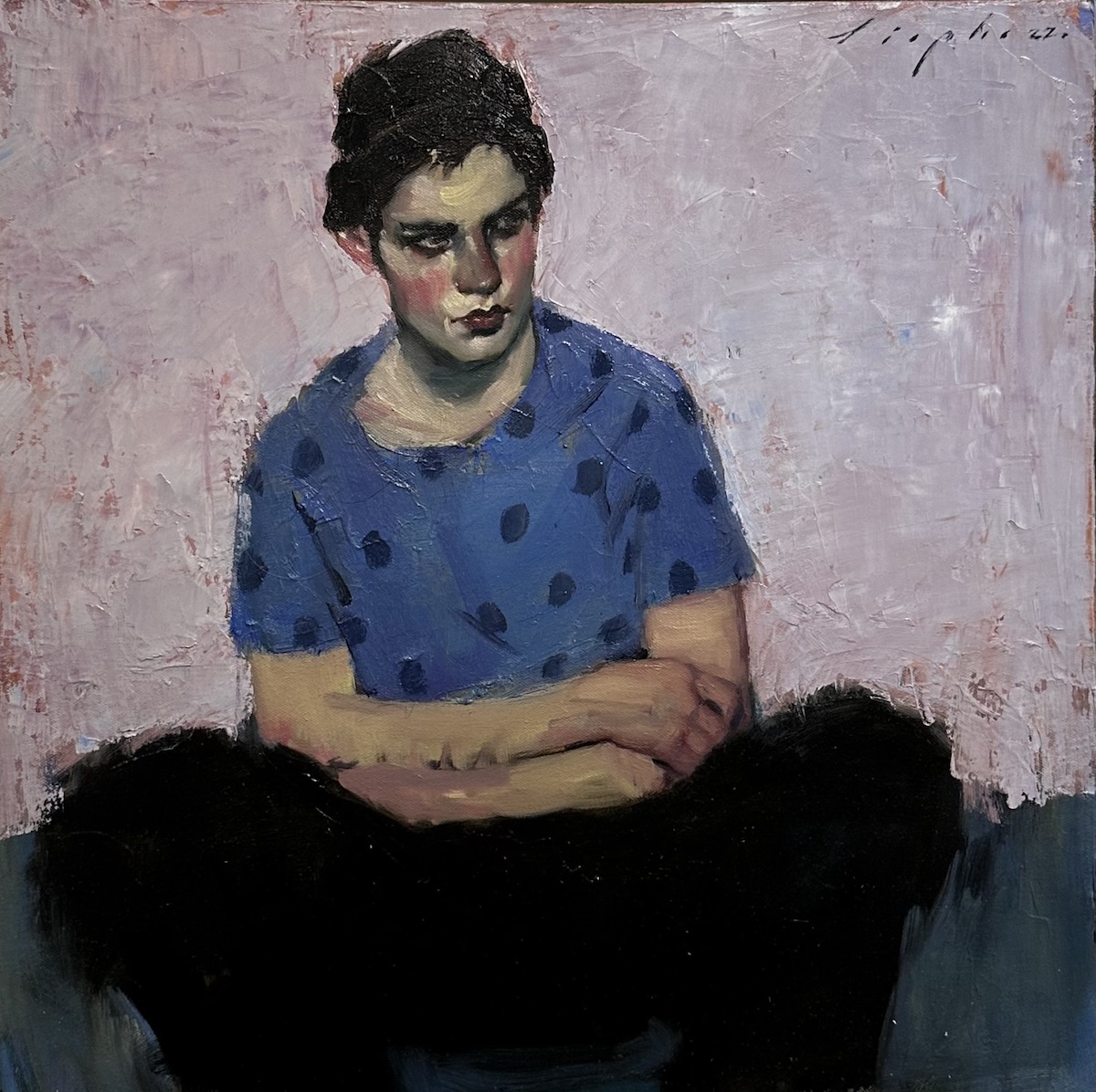
Malcolm Liepke is a household name. Liepke is celebrated not only by the Smithsonian Institutions but also by the prestigious Portrait Society of America. His thoughtful and sometimes seemingly static figurative paintings are the result of the convergence of the styles of some of his favorite artists-Sargent, Degas, Toulouse-Lautrec, Velázquez, and Whistlers-which Liepke has reworked in a wholly personal way into his sensual and introspective portraits capable of capturing the poetry inherent in the human nature.
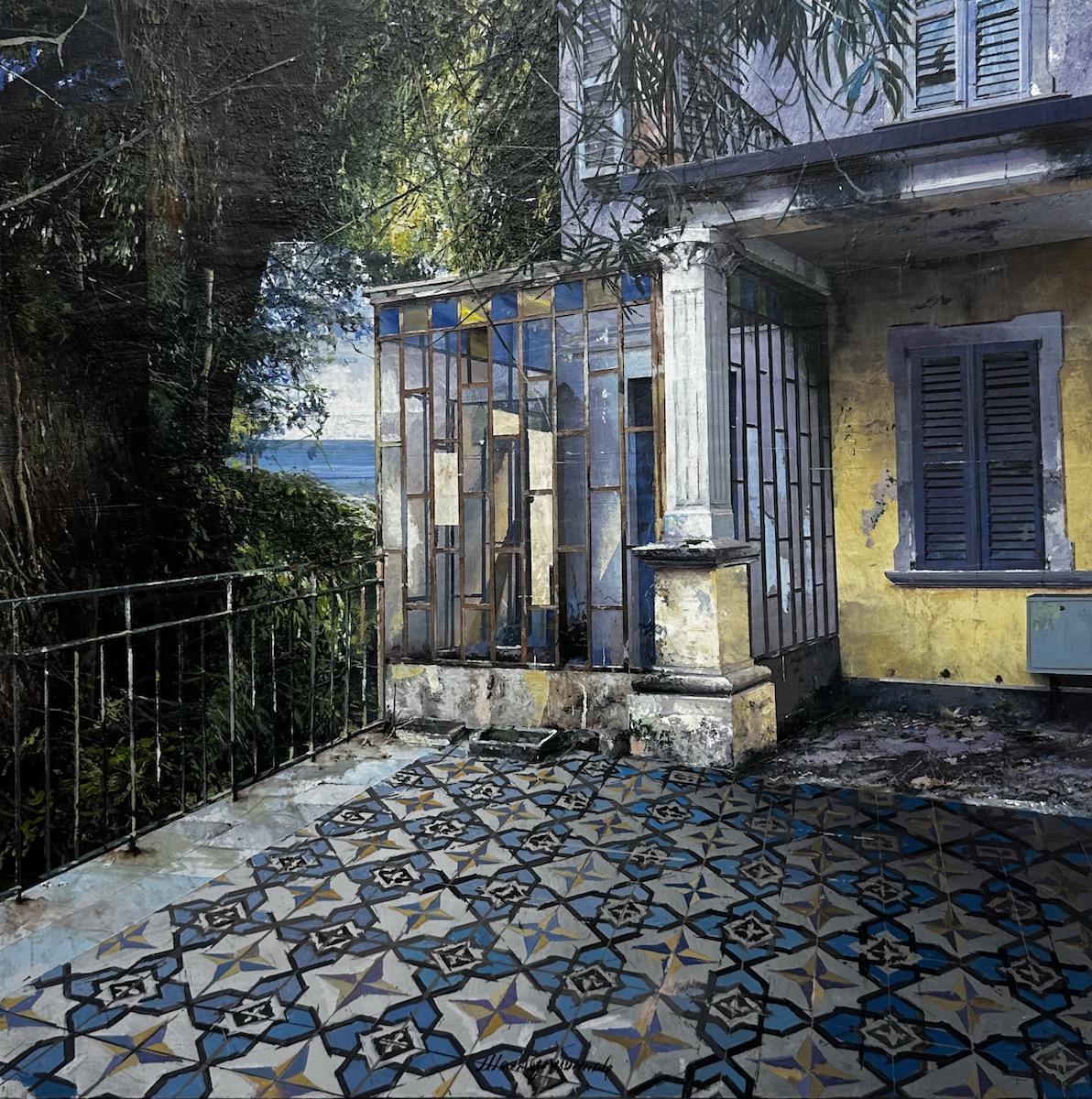
Instead, the scenes of lived-in and time-worn interiors are the favorite subjects of Matteo Massagrande, who, mindful of his past as a restorer and the suggestion he received from Giorgio de Chirico -who invited him to follow his own, wholly original style- paints using different focal points with which he builds different compositional sections. The addition of patina and the combination of textures in his paintings seem more the result of laborious restoration rather than the process of creating the painting itself, capable of projecting the viewer into the scene.
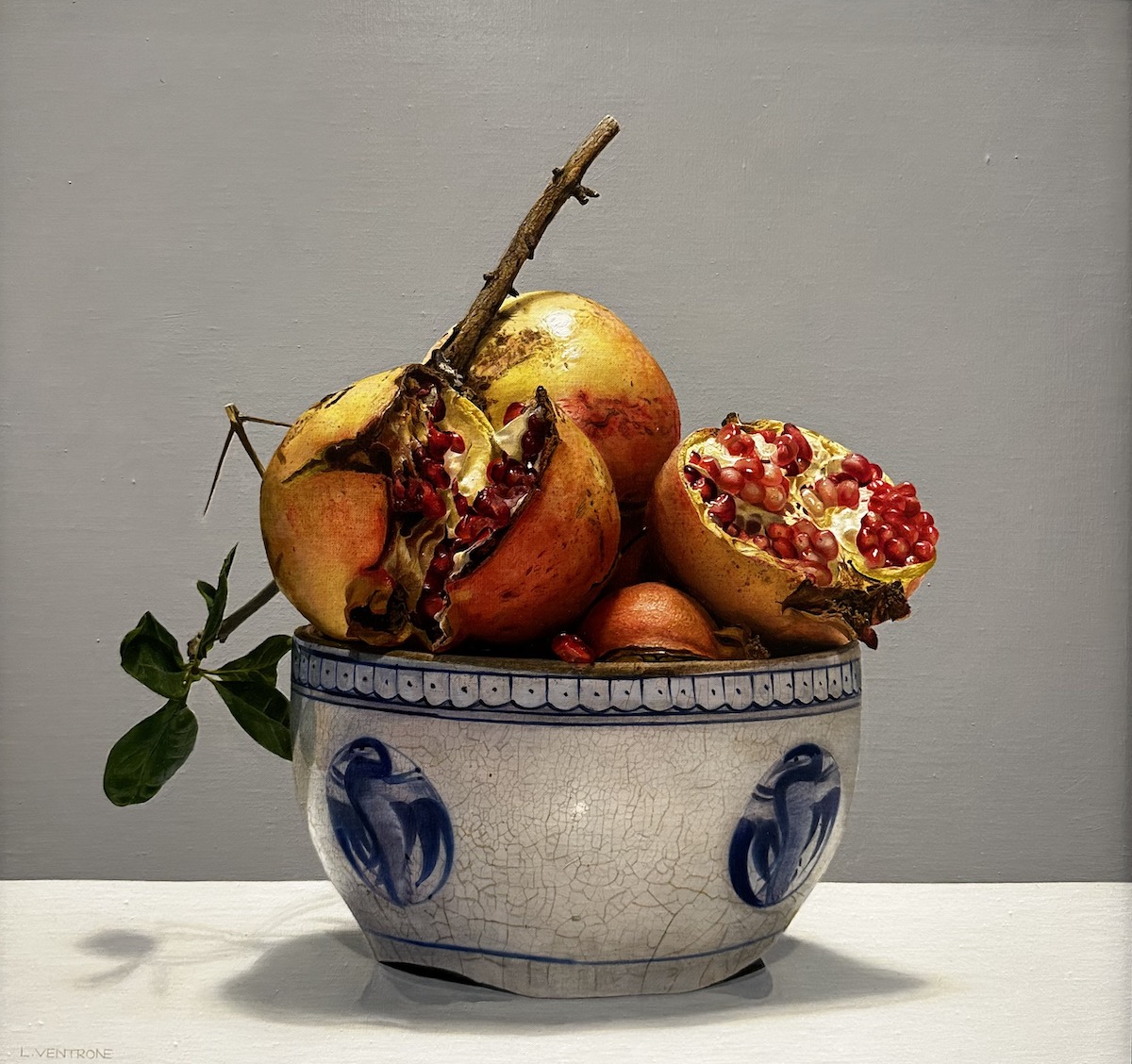
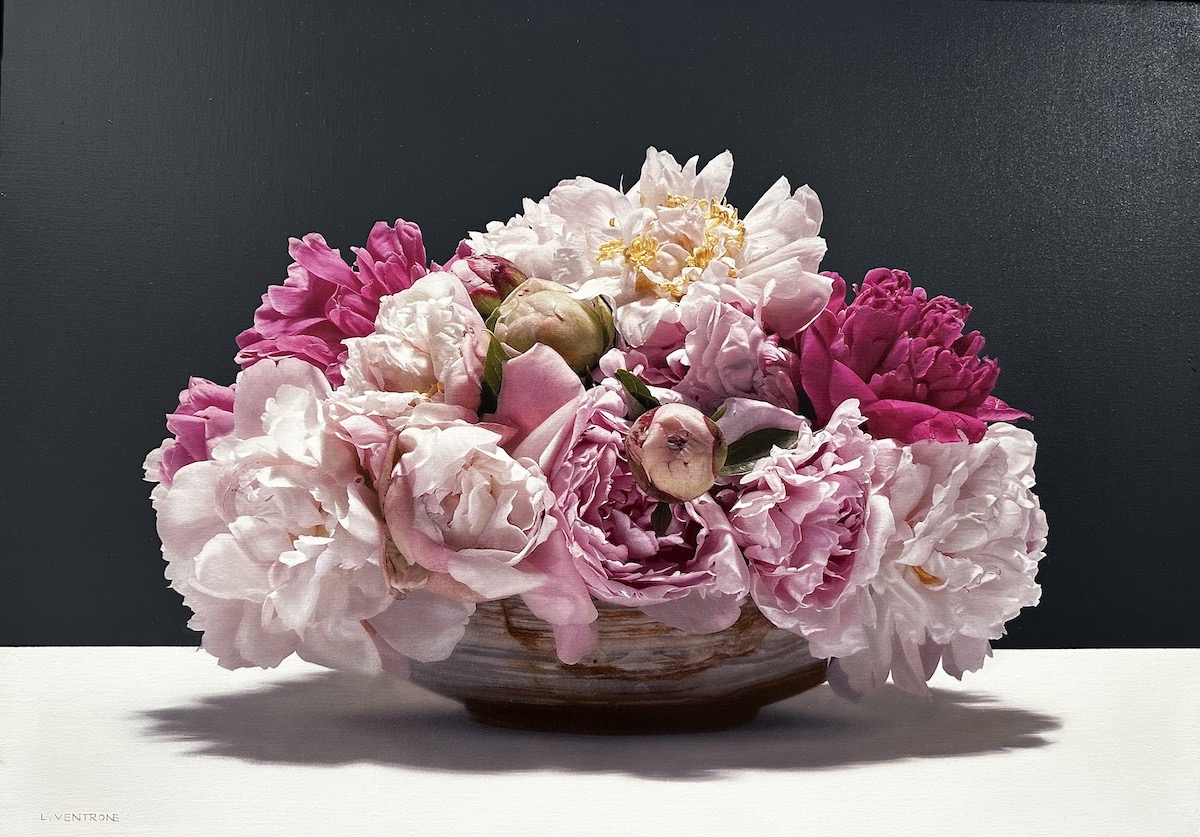
The late artist Luciano Vetrone, represented by Stefano Forni Gallery, is regarded as Italy’s best hyperrealist painter. Looking at his works, it is difficult not to be captivated by his different compositions: of flowers, fruit or nude bodies. All equally “truthful,” which are the result of an extremely rigorous discipline, both in the in-depth study of color and form. After being discovered by the great Italian art critic, Federico Zeri, Ventrone established himself as among the most prominent Italian artists of his generation.
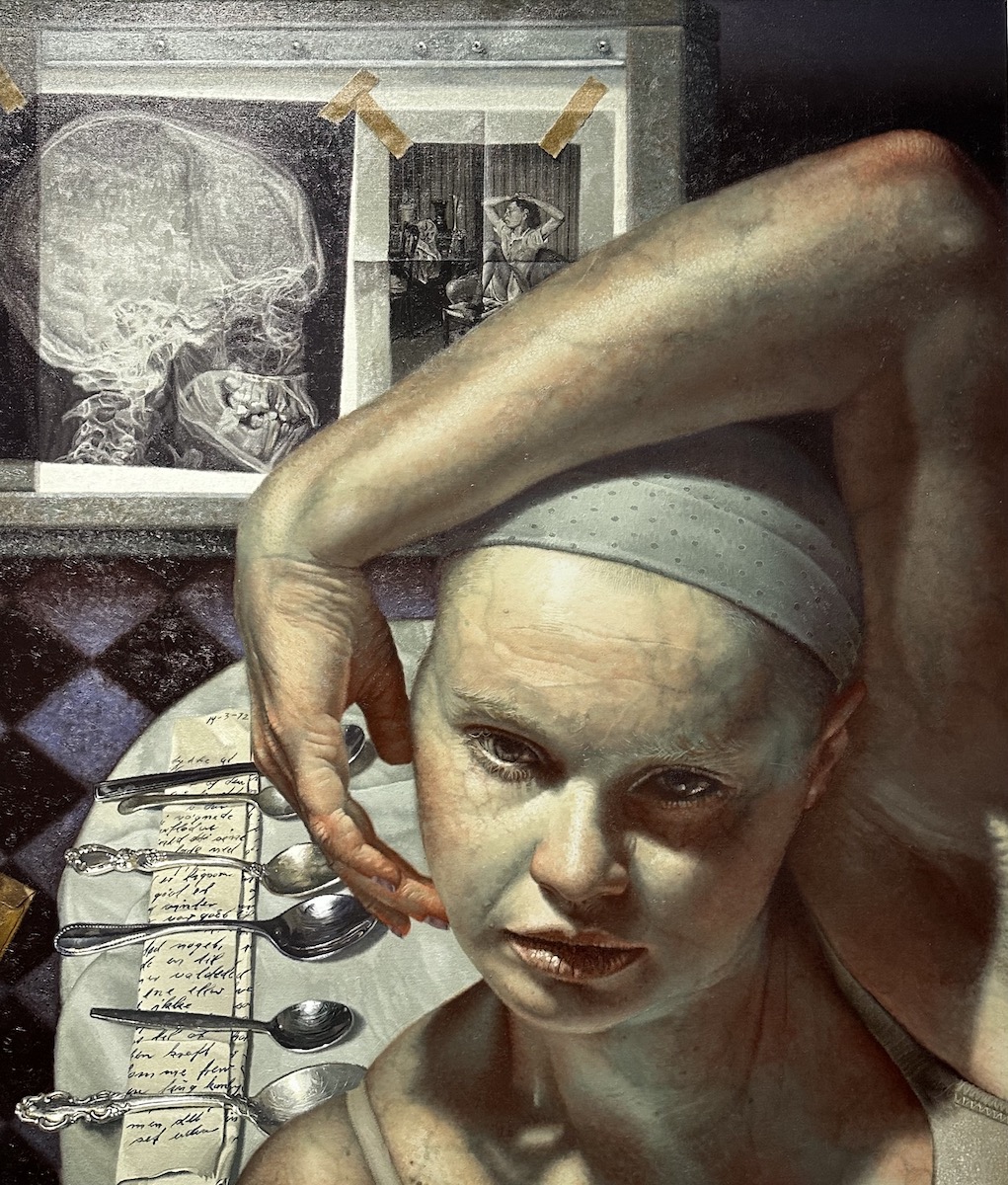
The purpose of art, according to British artist Edward Povey represented by Waterhouse & Dodd Gallery, is to make visible experiences that are not normally visible. This brief premise gives rise to his large paintings played out in shades of green and blue, in which: the layering of the dermis from which the veins of the skin of the subjects depicted emerge, visible, seem to be seen under a magnifying glass, while different objects, which follow improbable physical laws, appear in the composition without apparent meaning, making his paintings “complicated deceptions of human realism.”
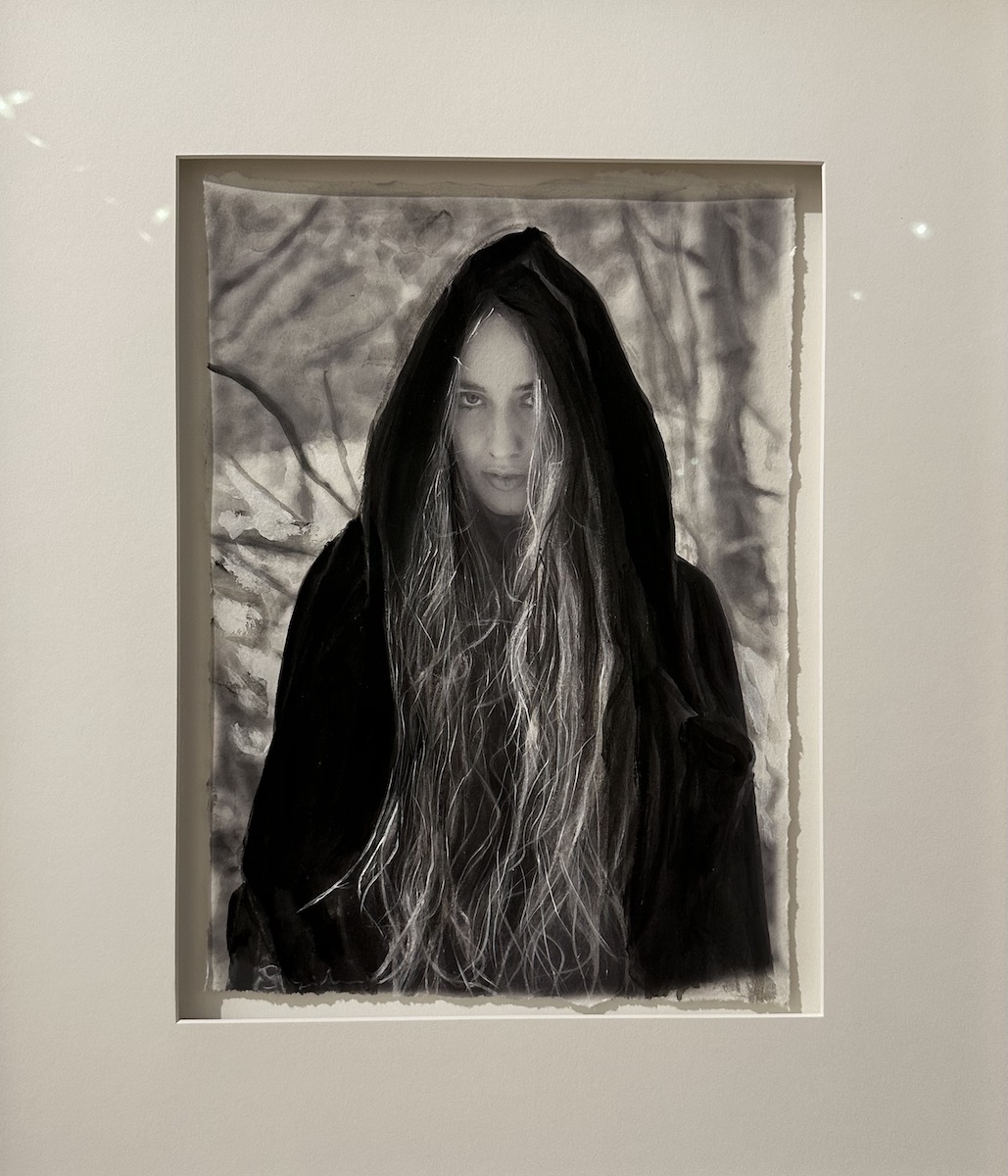
Although there are several photo-realistic works by artist Yigal Ozieri at the Galerie Raphael booth at the fair that seem to be for all intents and purposes high-resolution photographs, the one that most catches the eye is a portrait done in watercolor and gouache.
The work depicts a girl with long hair-a defining characteristic in his choice of subjects. It is Lizzy, the daughter of Mick Jagger, one of many characters belonging to the celebrity world that the artist habitually depicts by making large-scale oil paintings.
An Israeli-born artist, Ozieri tends to depict women in natural settings, as if they were Rossettian or Pre-Raphaelite muses, in which the veracity of the representation emphasizes his ethereal and dreamy characters who seem to belong to another world.
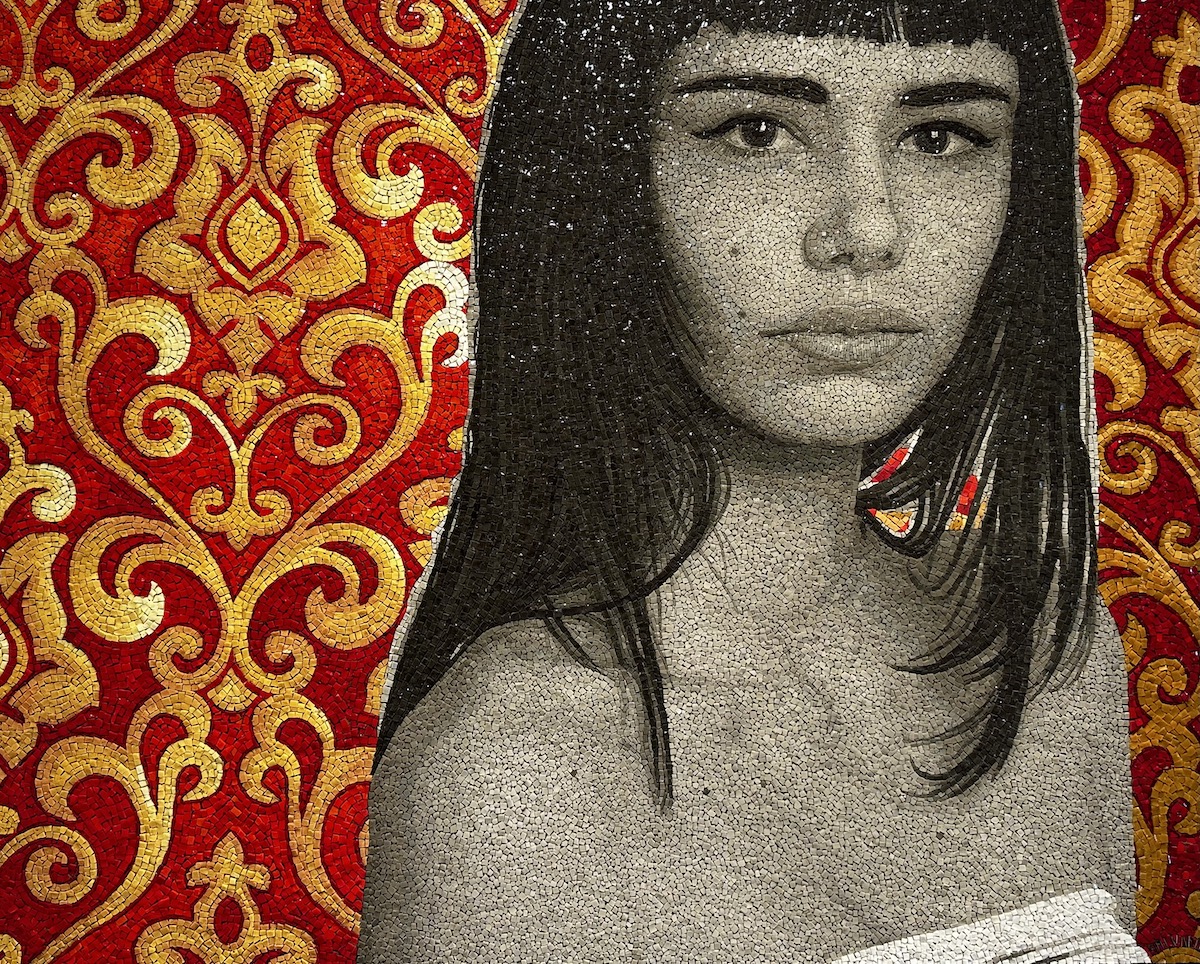
In the dense presence of two-dimensional paintings at the fair, Studio Berengo of Venice presented the hyper-realistic, mosaic works of Italian artist Andrea Salvador. Specializing in sacred mosaic art and stained glass production, the artist conceives mosaic portraits as a huge fragmentation, similar to digital pixelation, capable of transforming a concept into a tactile expression. A conceptual association that perfectly marries contemporary taste to one of the highest expressions of historical Italian art.
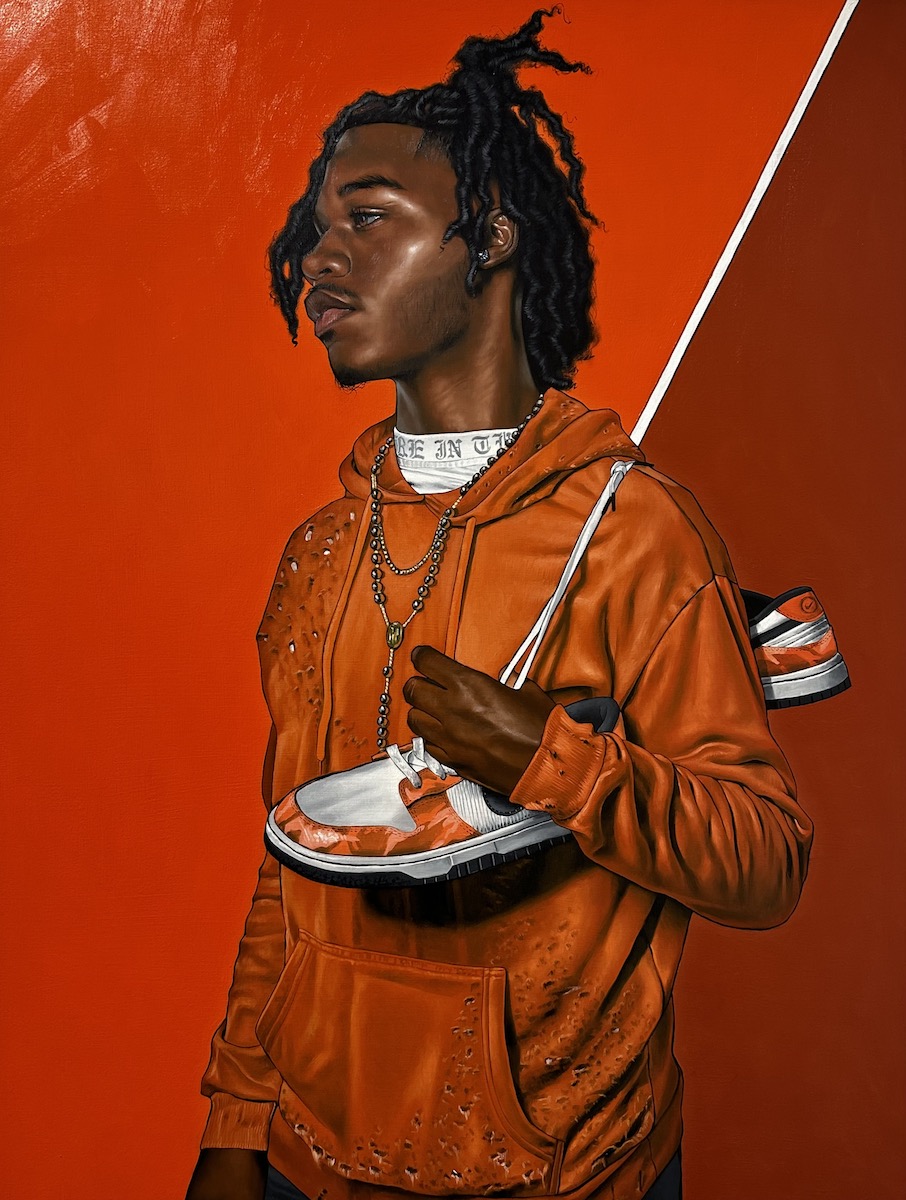
Artist Monica Ikegwo, represented by Mirtys Fine Art & Advisory, depicts African American characters of which she is a member. In her works, she particularly focuses on the dichotomy given by the attitude of the individual, who has his or her own self-perception, in relation to others’ perception of him or her. From this dichotomy emerge -from monochromatic backgrounds of intense colors- characters that seem to come to life and in which the dichotomy between being and appearing is silenced by the expressiveness of the faces, which characterizes each individual subject.
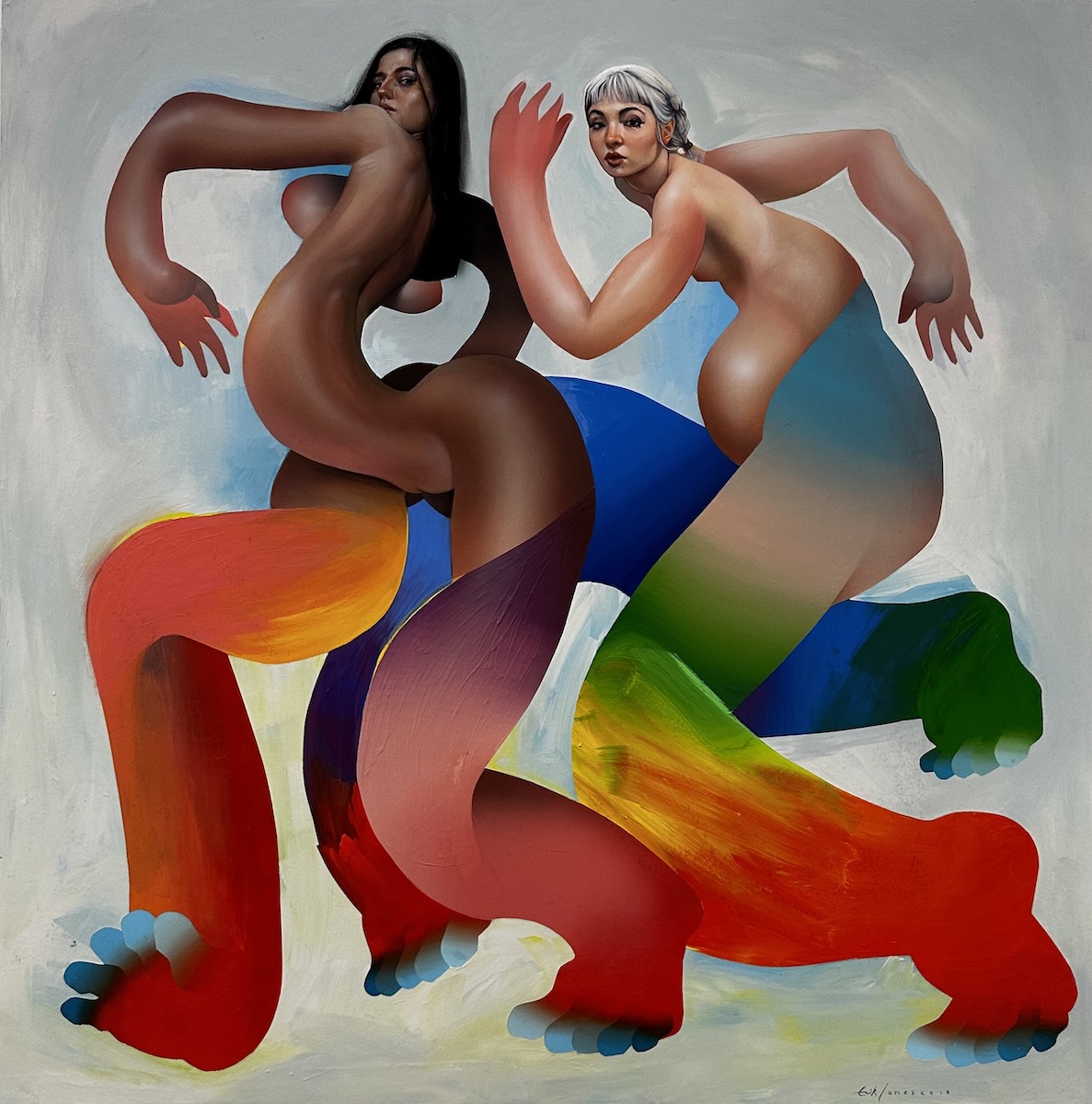
Hashimoto Contemporary presented the innovative works of Erik Jones: a singular artist whose paintings-in which he paints realistically, the head and extremities of the body-are mostly made up of collage pieces put together through an interesting technical approach. In fact, the artist, in making the bodies gives rise to a compositional process in which he mixes up to eighty colors: as if he were manually making the work done today by Photoshop.
The result is a fusion of creativity and human adaptability that go well with the concept of the organic fluidity of life.
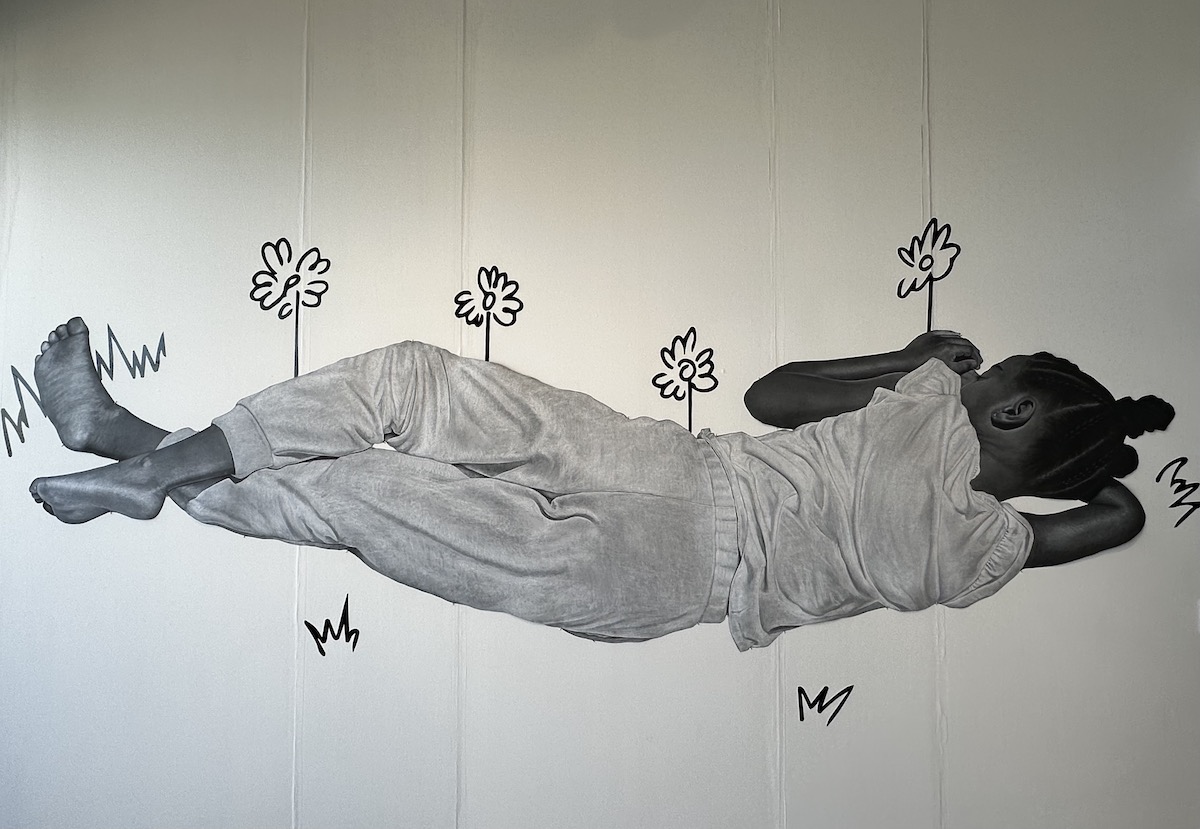
Chris Friday, an emerging artist and currently showing in the halls of the New World School of Art, with the exhibition: “The Front Room,” was represented by Berenice Steinbaum Gallery. Credit for the choice must surely be given to the skill with which Friday creates large-scale works with which she explores and analyzes the concept of “rest as a restorative act,” especially in relation to the African American community.
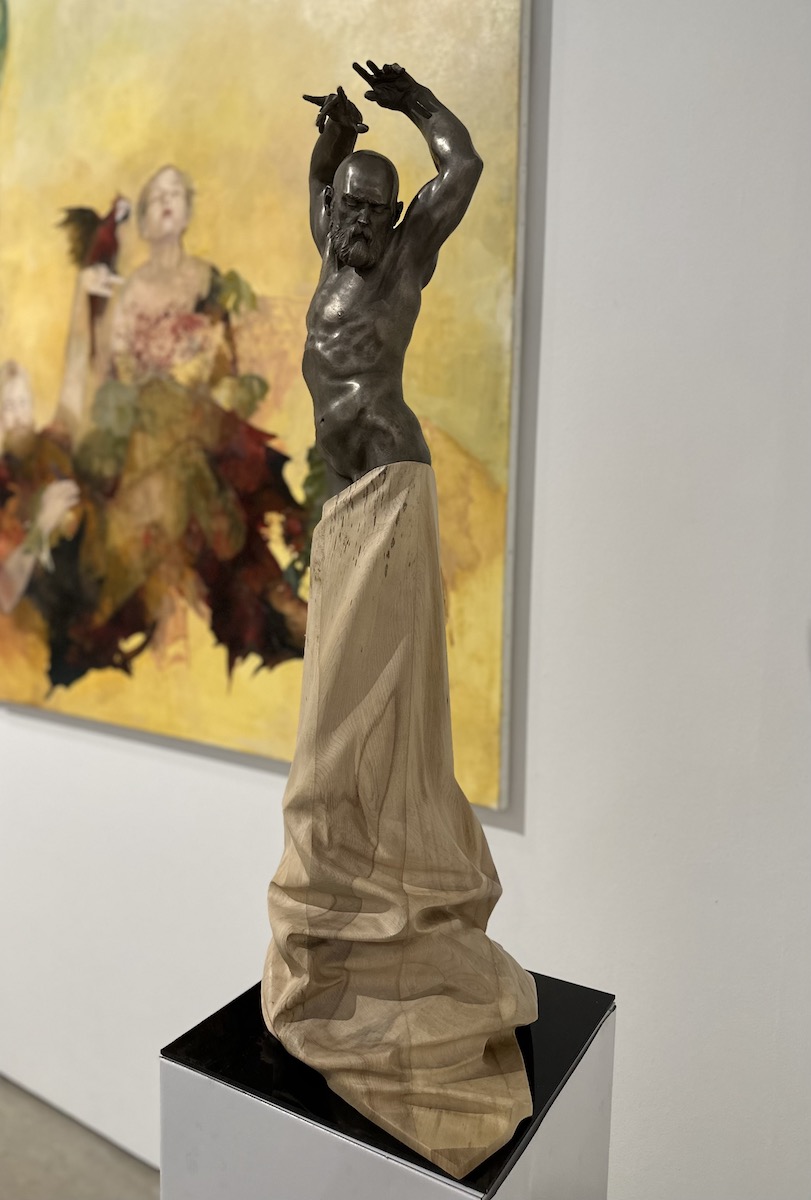
Galerie Calderone, proposed the sculptures of artist César Orrico, which find their highest expression in the work “Cenit”: a silhouette of a moving aesthetic refinement capable of offering a transversal vision of sculpture. In his works Orrico is able to converge: the classical paradigm with modernity and originality of representation to the fundamental principles, which represent the foundations of this ancient art.
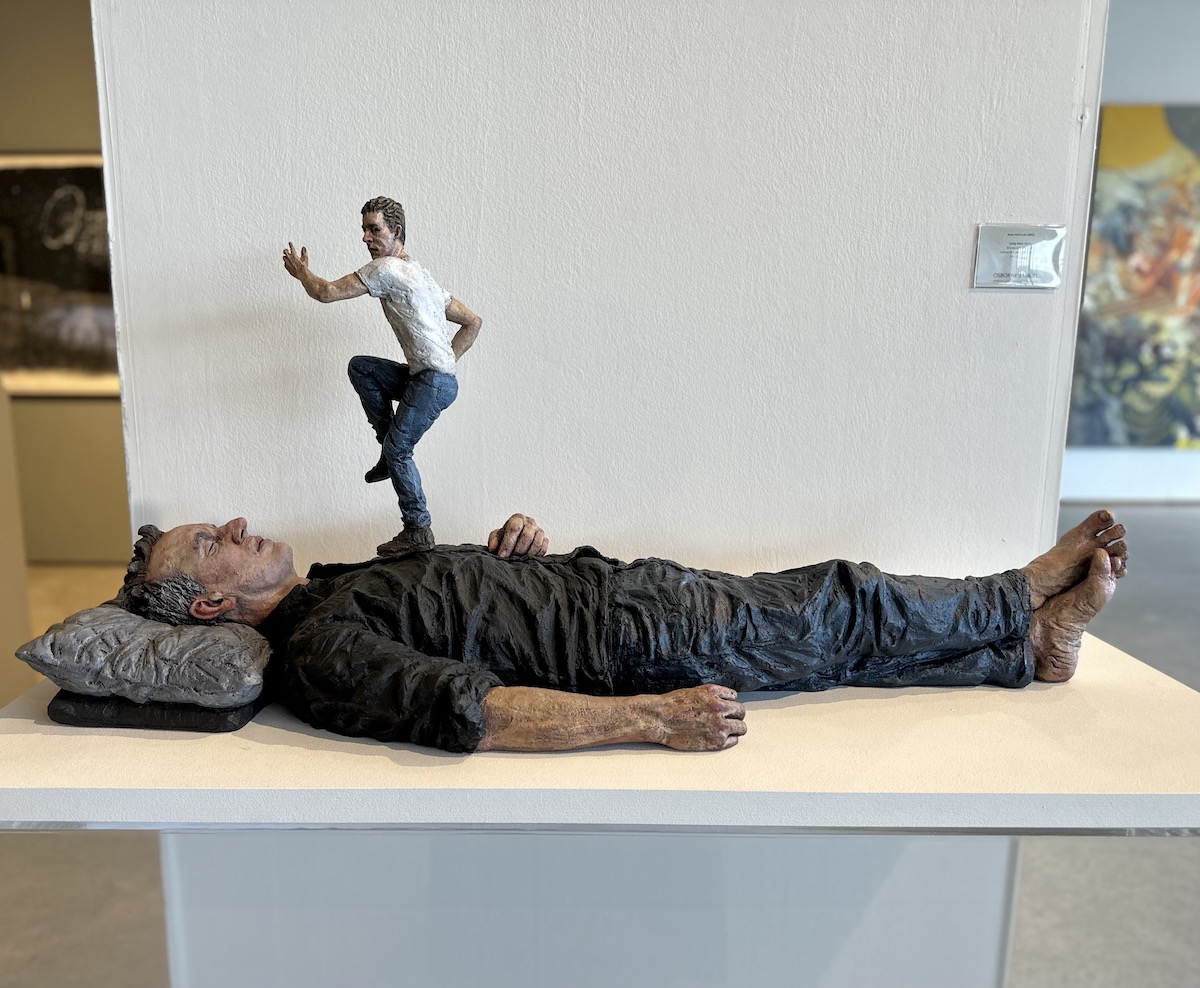
In contrast to the dynamic works of César Orrico, the works of Sean Henry were exhibited by Osborn & Samuel Gallery. According to Henry, sculpture represents the means of understanding through which the individual perceives and responds to the strangeness of the world. A consideration that the artist defines as relative since, the beauty of art being in constant flux, each sculptural or pictorial piece exists by taking on different meanings that vary as the human condition changes.
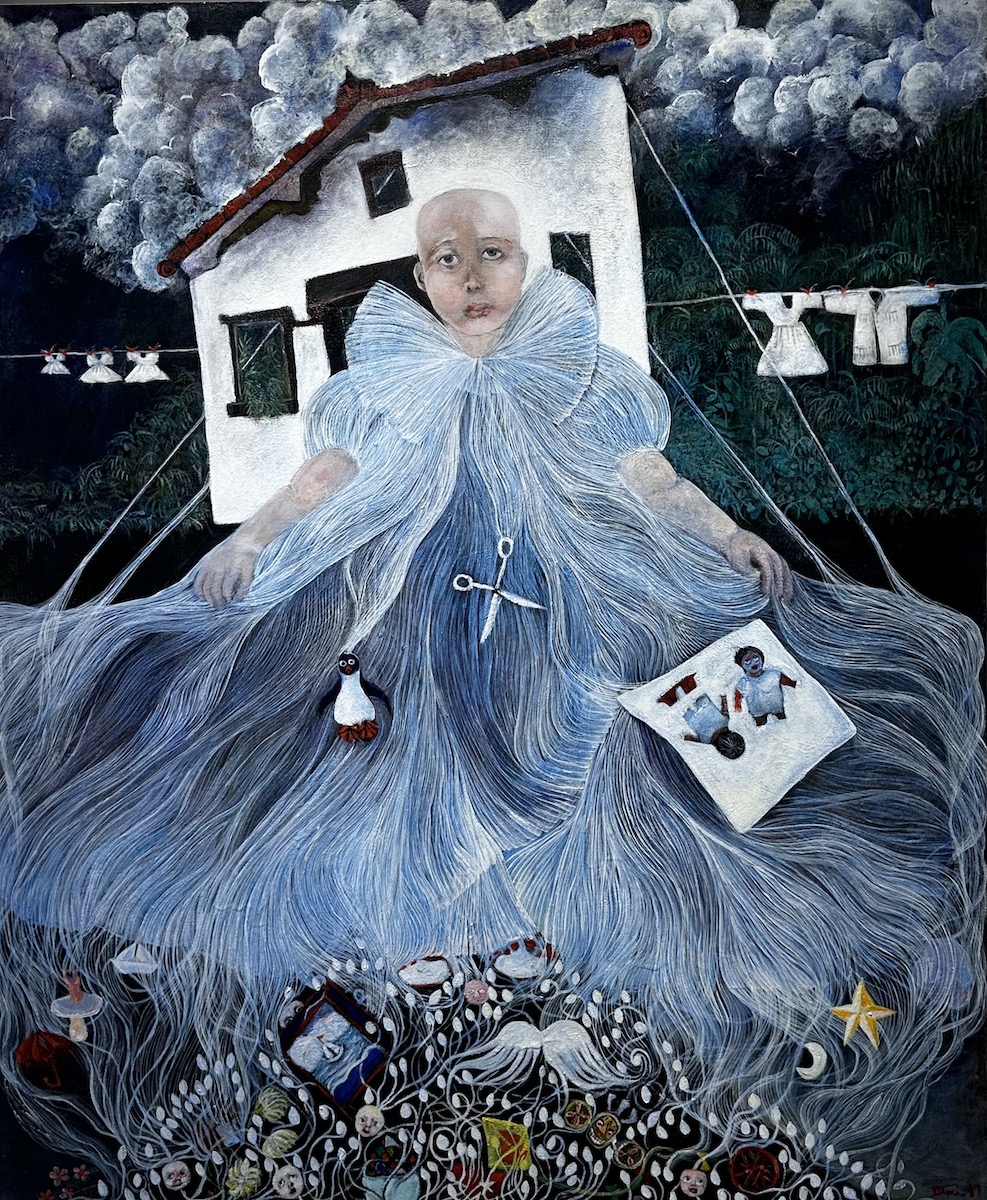
The “Cernuda Arte” gallery, which specializes in works by Cuban artists, presented the works of artist Demi, who, with a reference to her childhood as an immigrant, explores the emotional and psychological conditions of children in her almost fairy-tale-like works, emphasizing the fundamental role of society in the development of the sense of security and protection necessary for their growth. Such is the importance of this artist that since 1998, the Smithsonian’s Archives of American Art has collected her works and documents. Because of the socially important issues she addresses, and in the manner in which she addresses them, she was personally invited to exhibit a work in the residence of the U.S. Embassy in Vatican City, as part of the “Art in Embassies” program: a prestigious recognition for American and international visual artists.
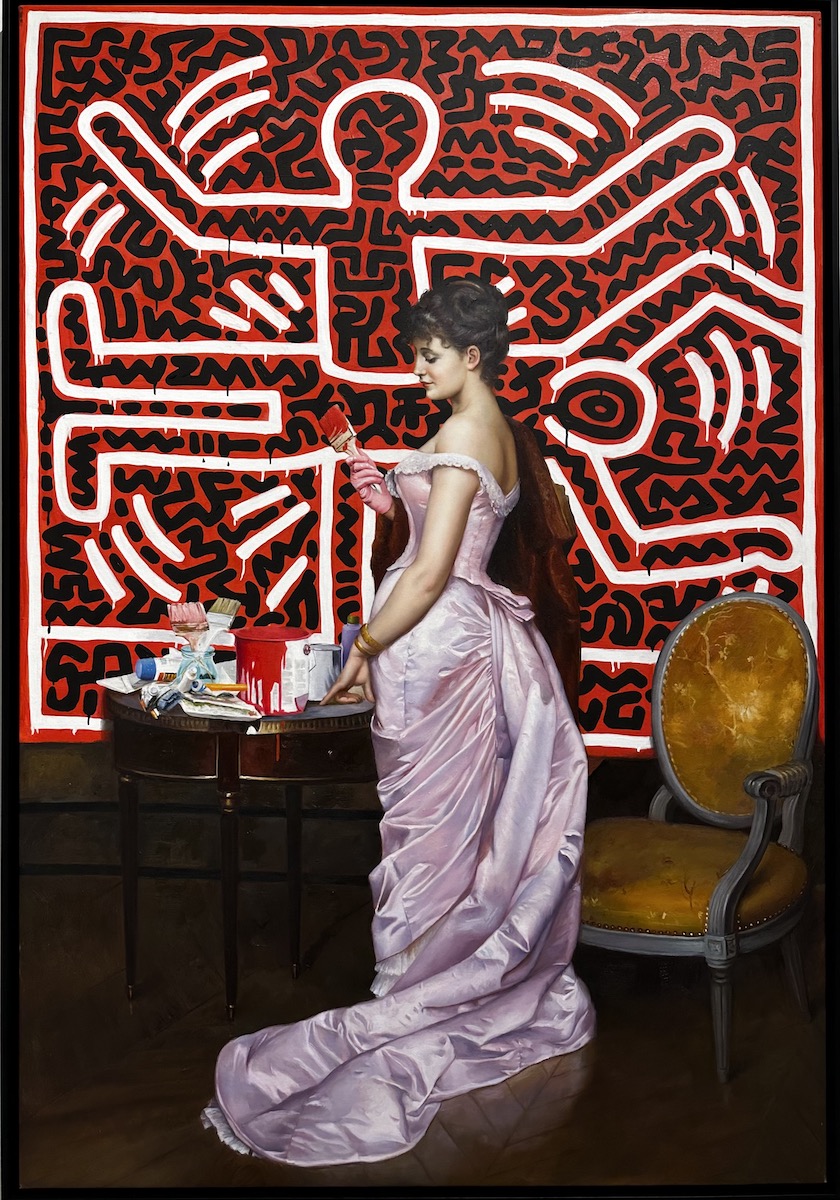
Bel Air Fine Art turned the spotlight on Italian artist Leo Manelli, who in his artistic journey has achieved balance in the synthesis of present and past. In his masterfully crafted works, the characters depicted by the greats of art history interact with the works of modern and contemporary artists, erasing the boundary between past and present.
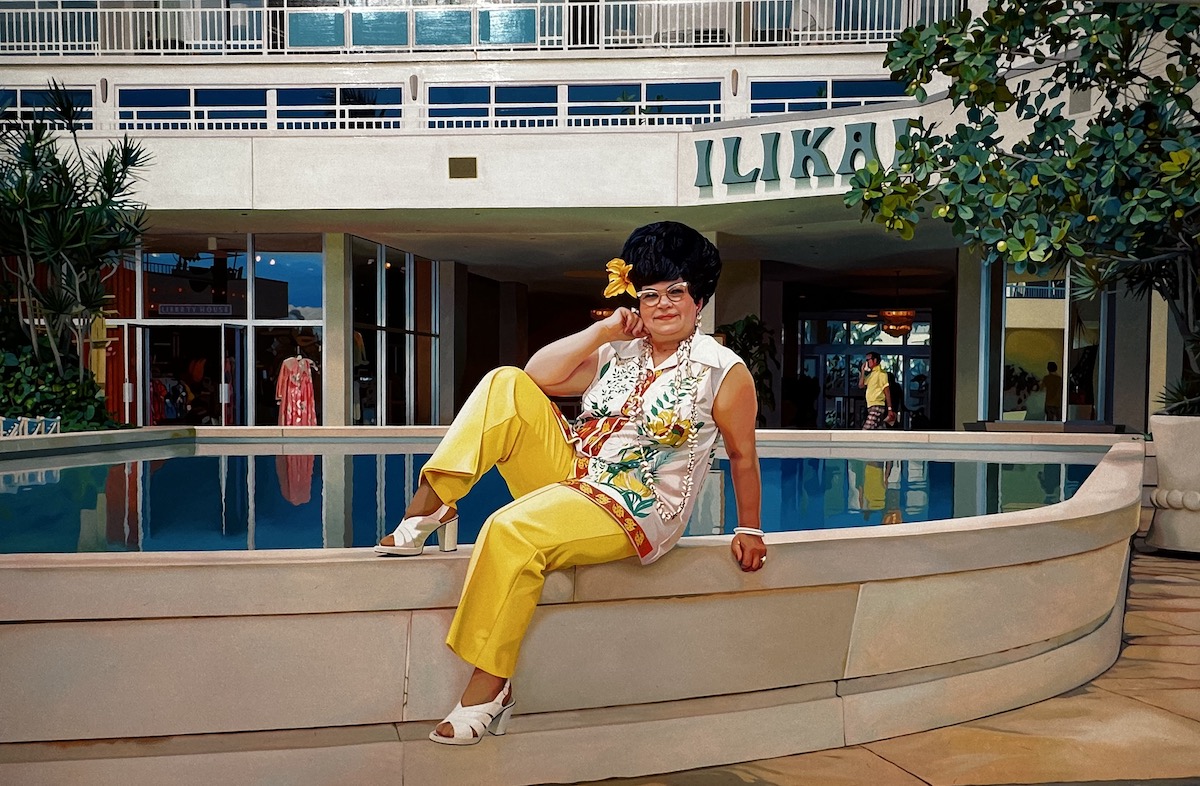
If the job of gallery owners is to exhibit artworks that can tell stories, the job of us, writers, is to tell them to the world. Altamira Fine Arts has brought the story of painter Robert Towsend, known for his highly defined images of icons of American pop mythology, into the Miami spotlight.
Towsend, after casually purchasing a batch of slides on Ebay, was literally thunderstruck by what he later called, “My Indiana Muse,” Ms. Helen. A lady from the 1950s who captured the artist’s attention to such an extent that he devoted ten years of his life to her. During these years, in addition to making meticulous large-scale paintings in which she is the undisputed protagonist, with her charm, hairstyles and style always impeccable on par with a Hollywood diva, he also made a documentary. A project that prompted Towsend to visit her home, retracing her footsteps, setting out in search of her affections. Towsend introduces us to an always smiling and energetic character who could be our aunt, our neighbor or the woman in the supermarket, making her a part of our existences.
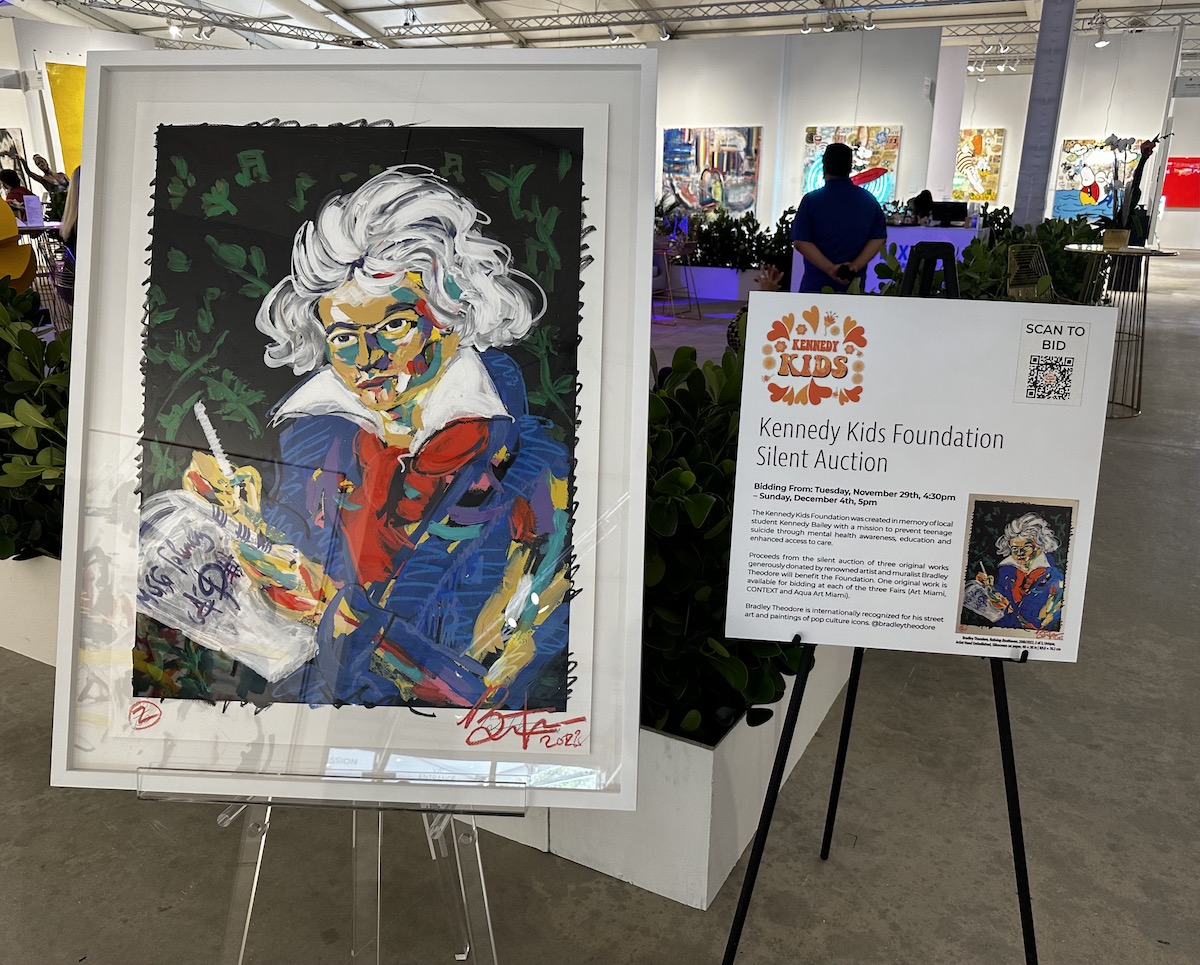
As part of its social projects, Art Miami+CONTEXT Art Miami has heartily supported the Kennedy Kids Foundation: an association established in memory of young Kennedy Christina Bailey. The foundation aims to prevent suicide in adolescents, made possible through access to treatment, psychological support and education. To raise funds for the foundation that will help teens live in this difficult world, artist Bradley Theodor created a work of art whose proceeds from the silent auction will benefit the foundation.
(on the title, Intermediate by Erik Jones, 2022. Pencil, acrylic & wax pastel on paper on panel, 36 x 48 inches. Hashimoto Contemporary)
